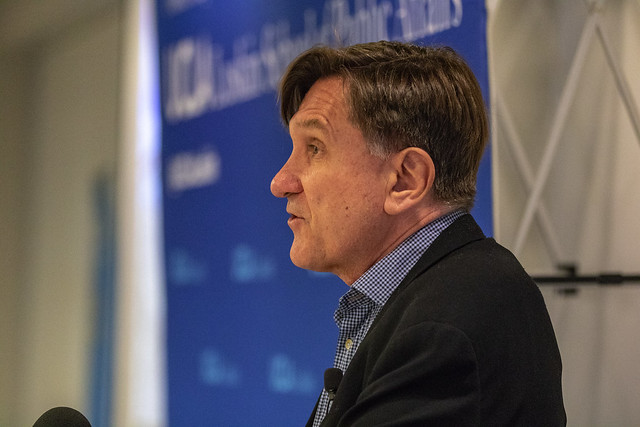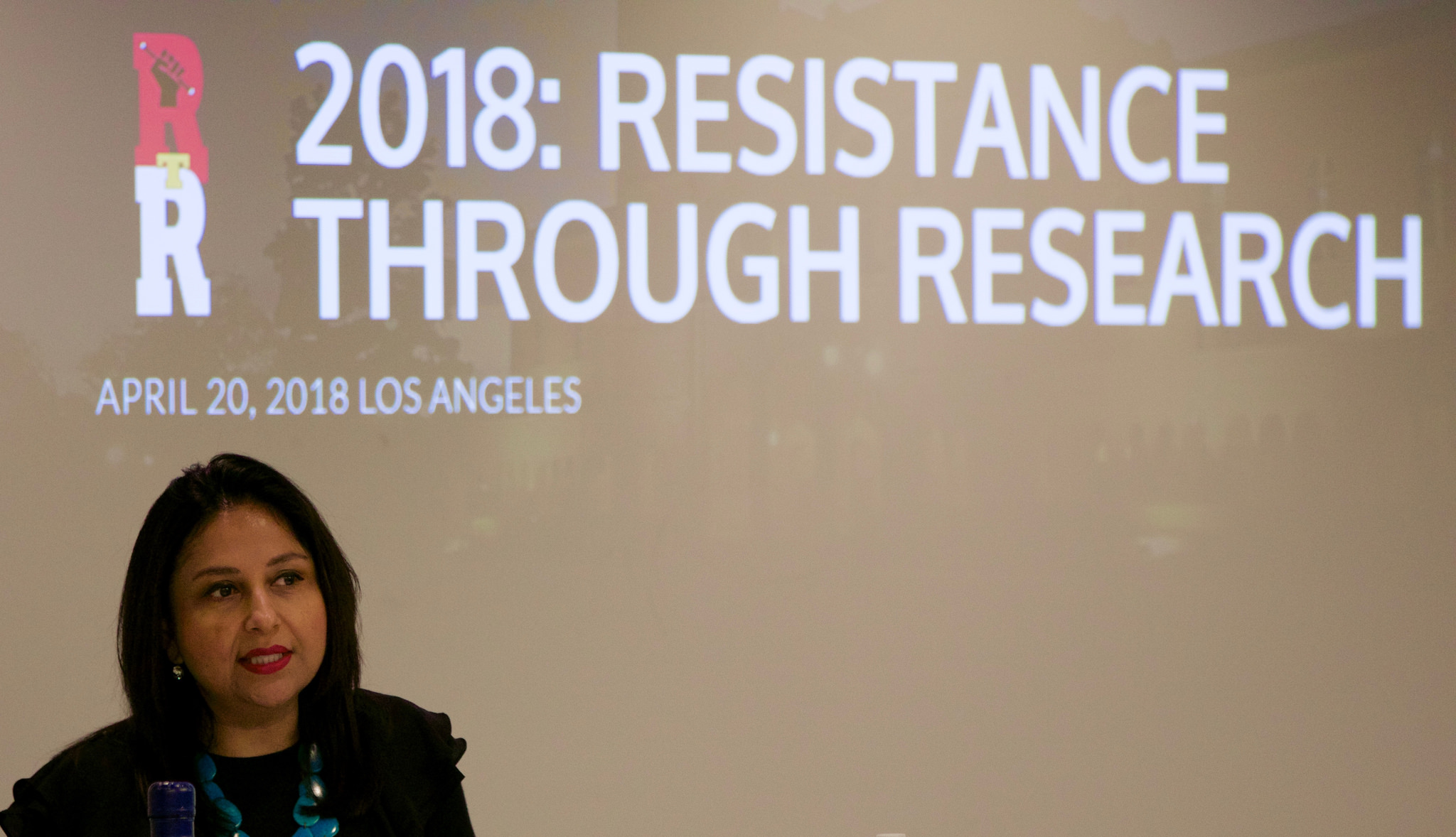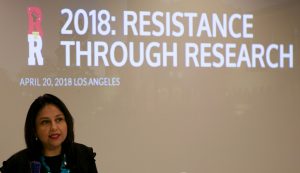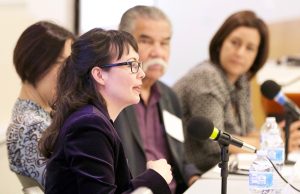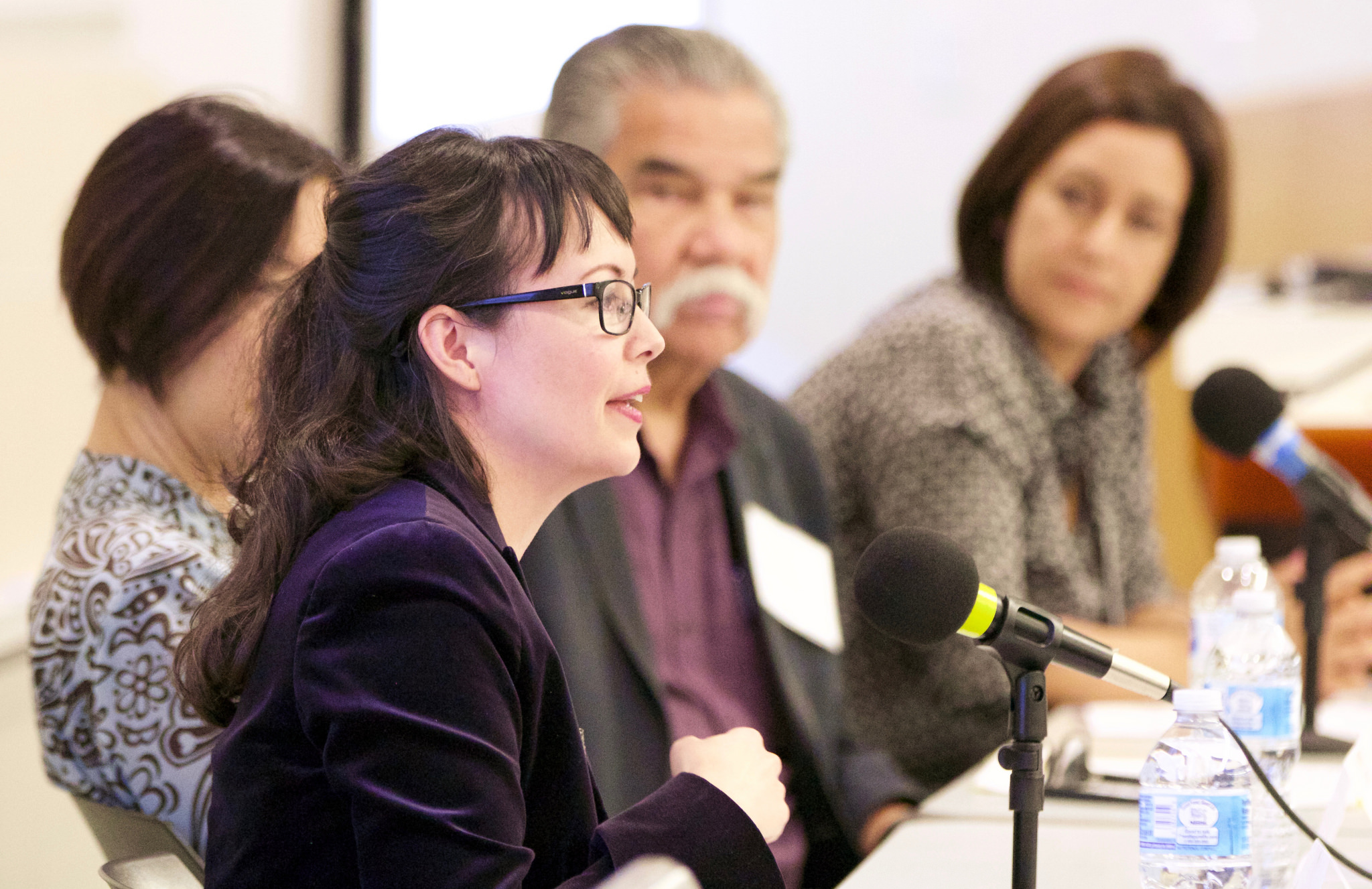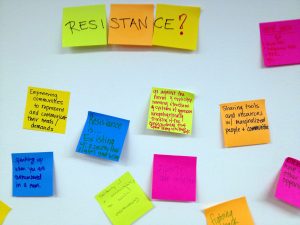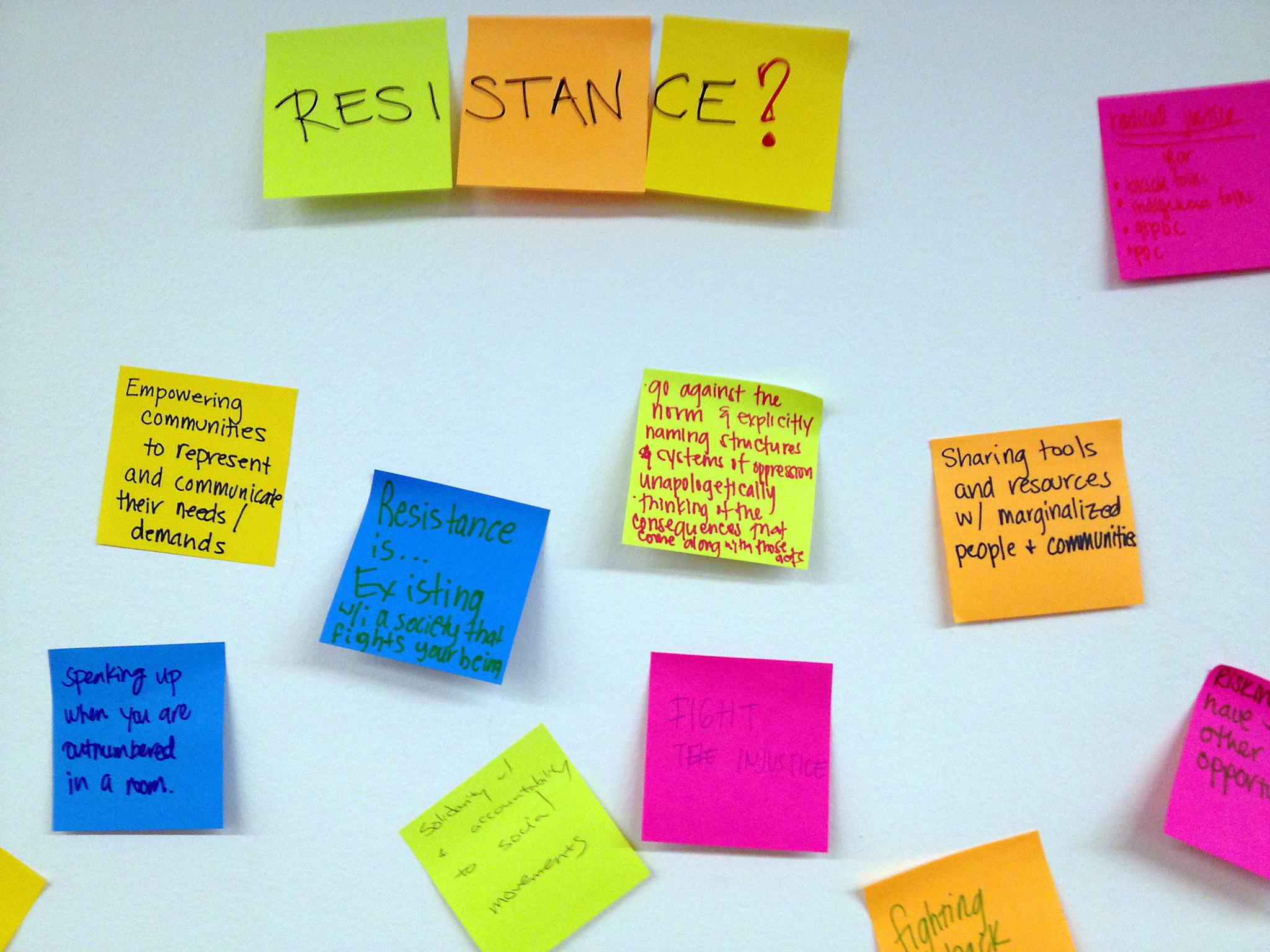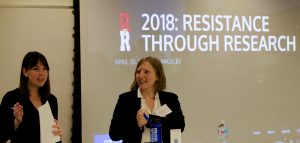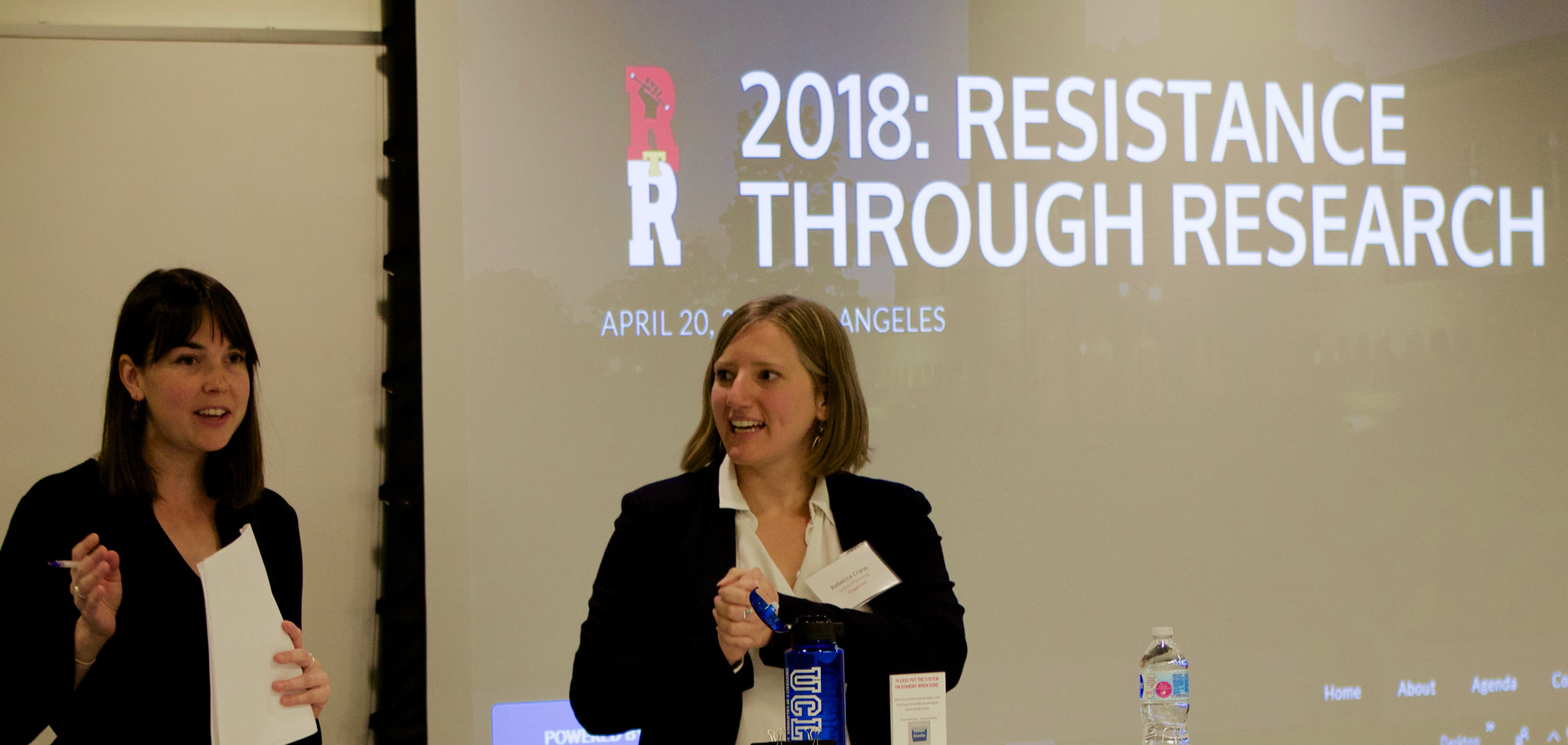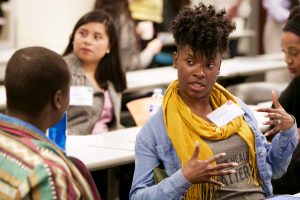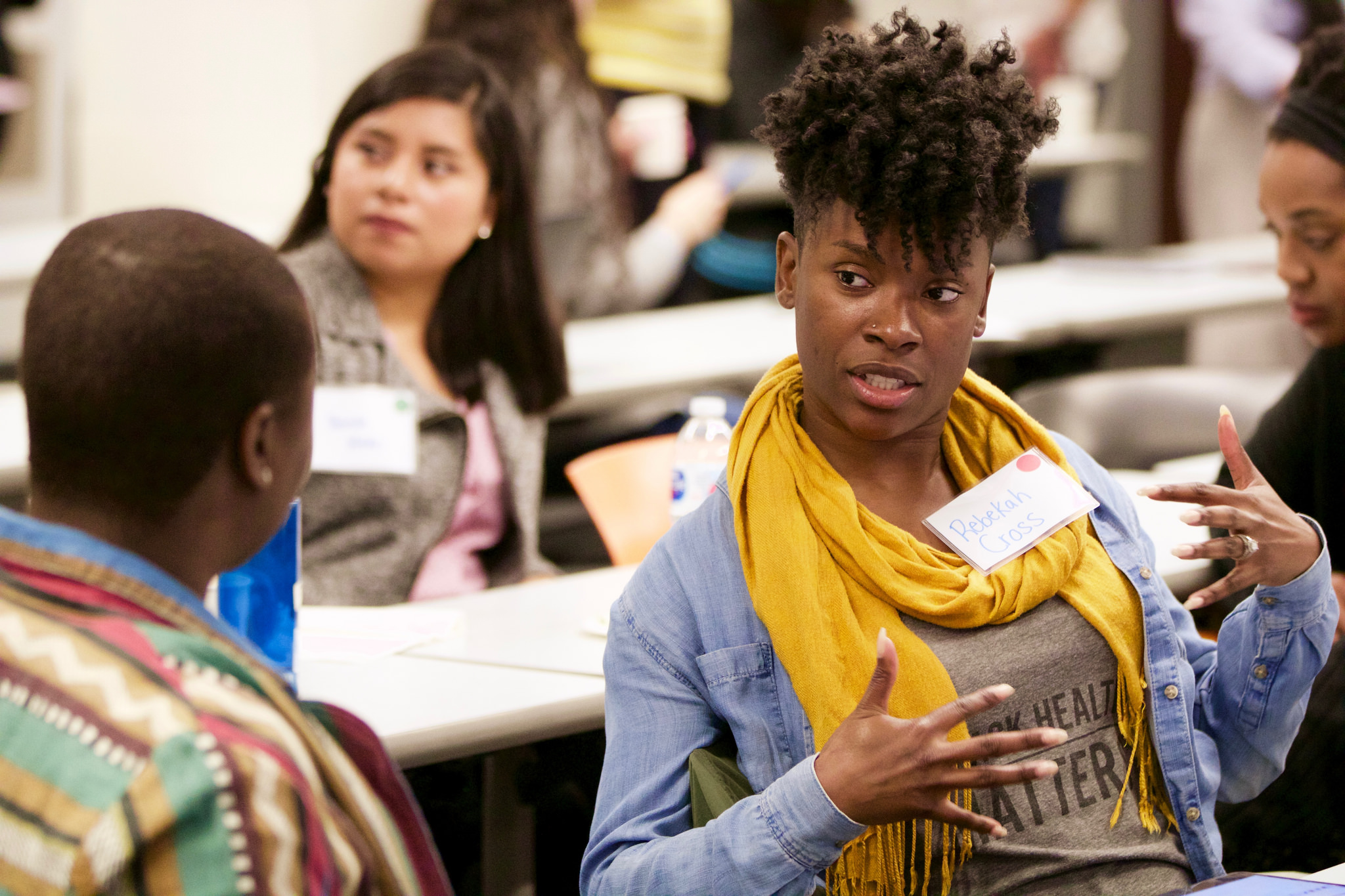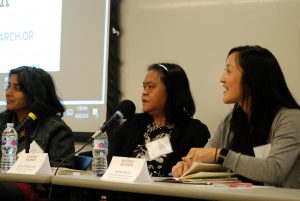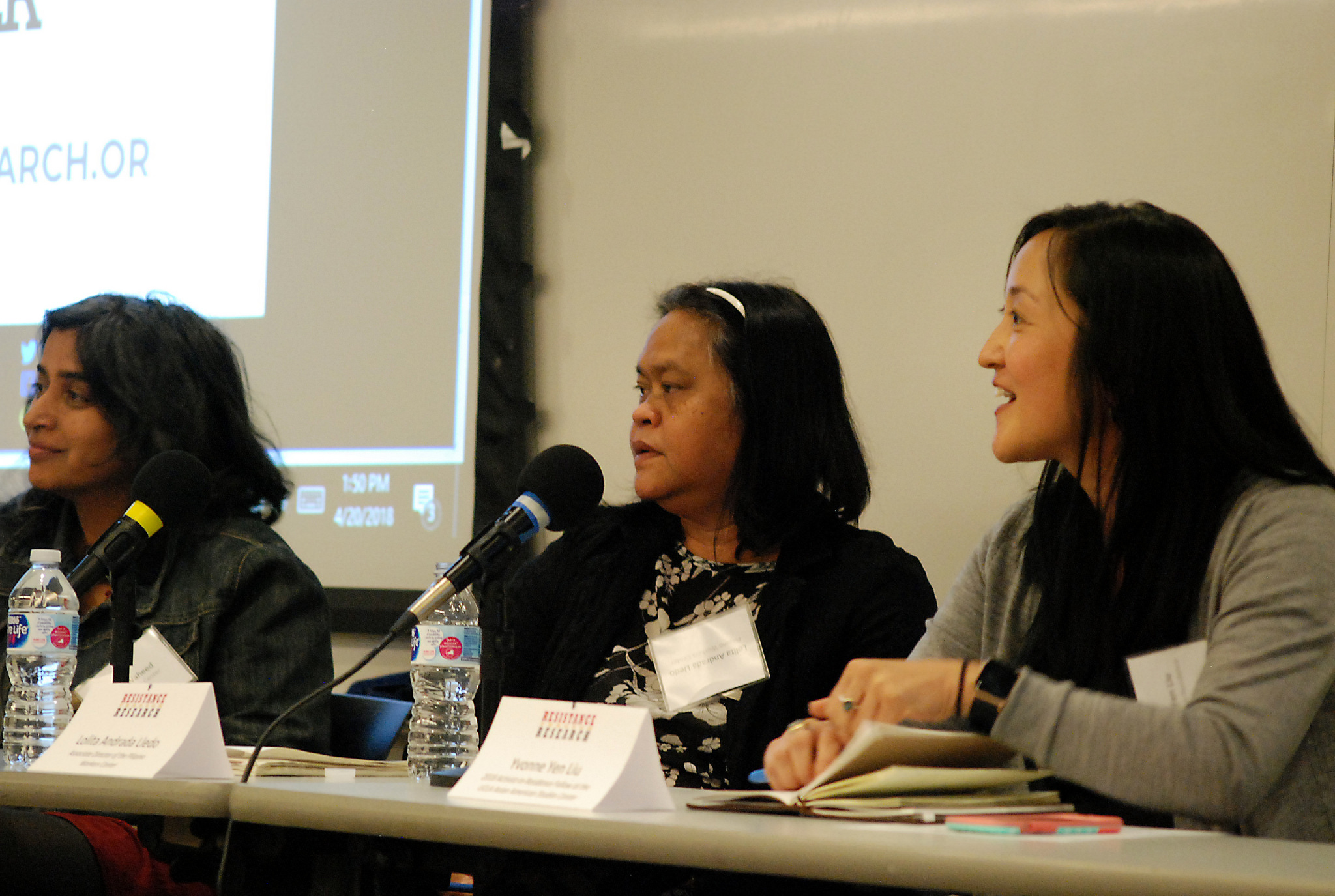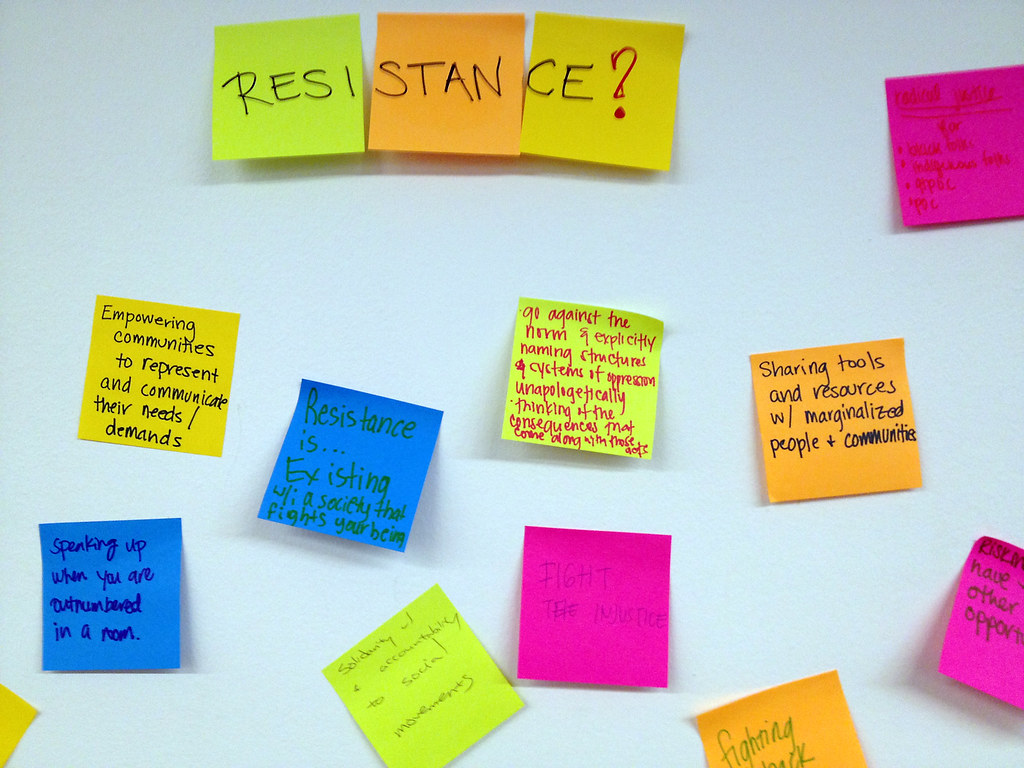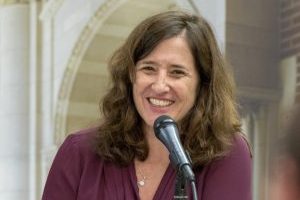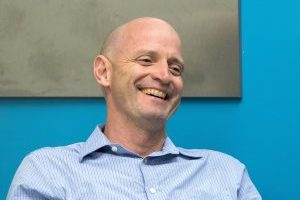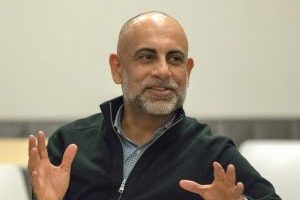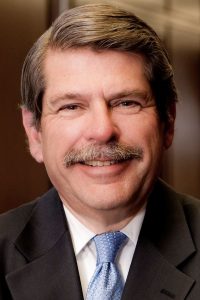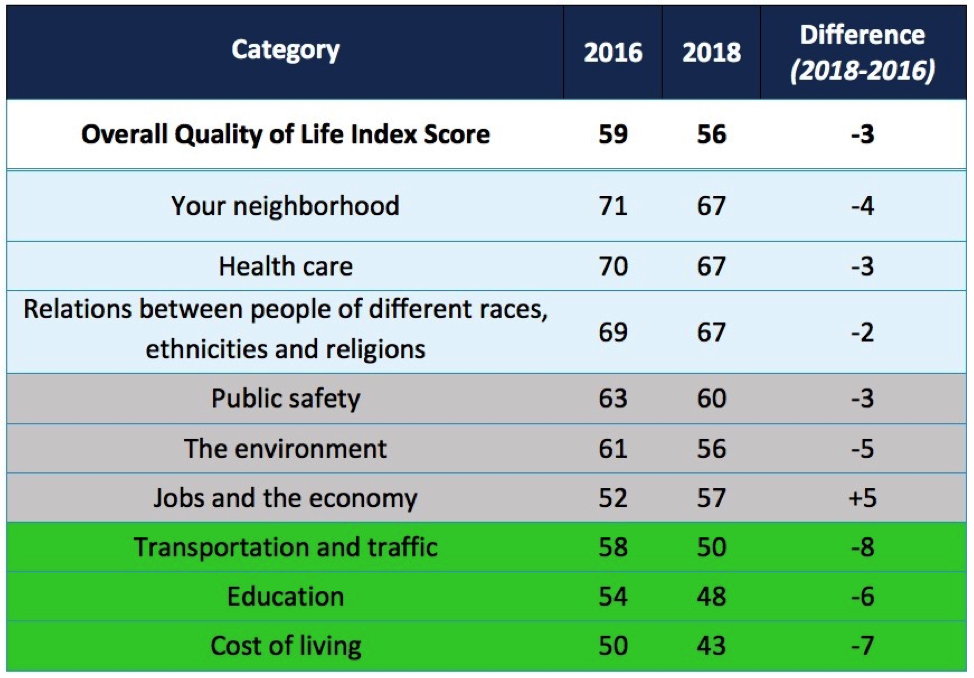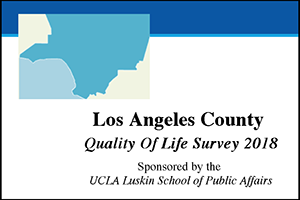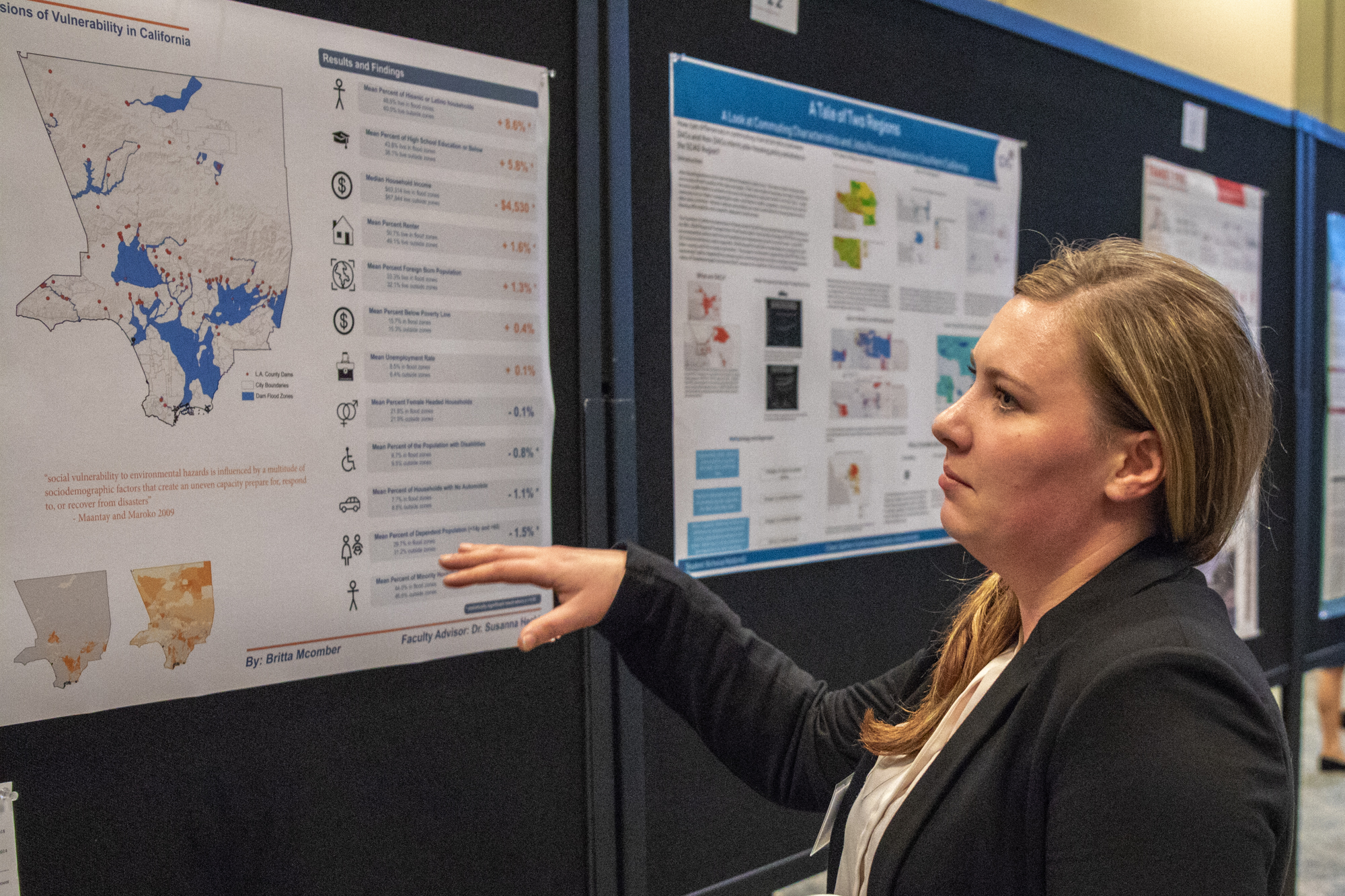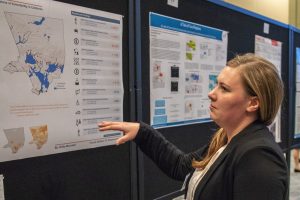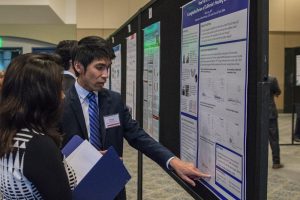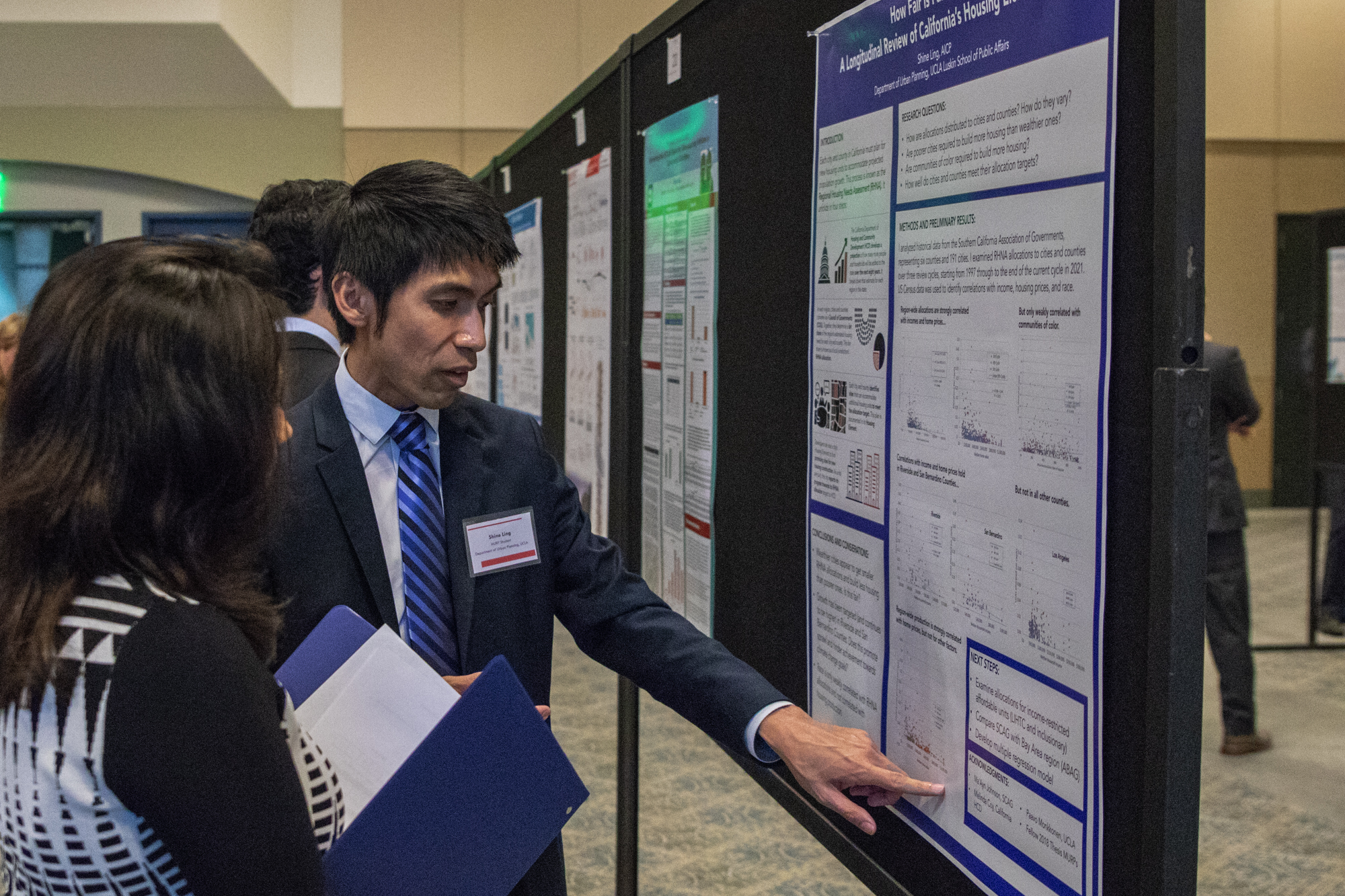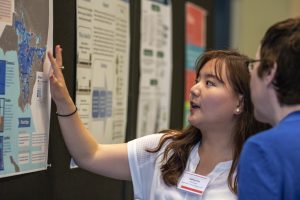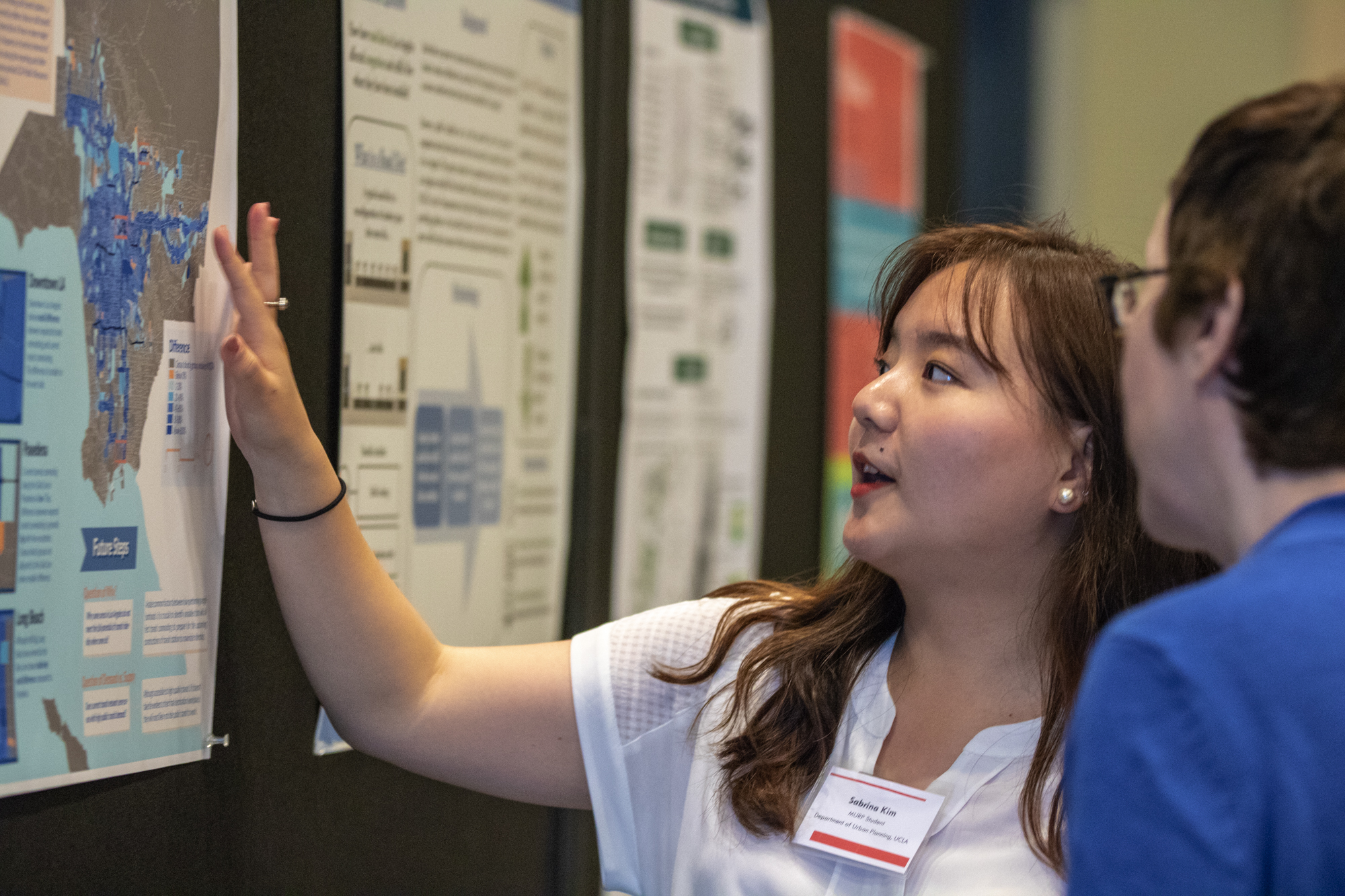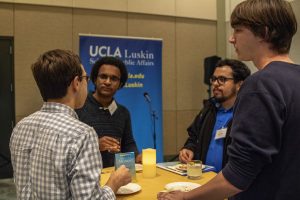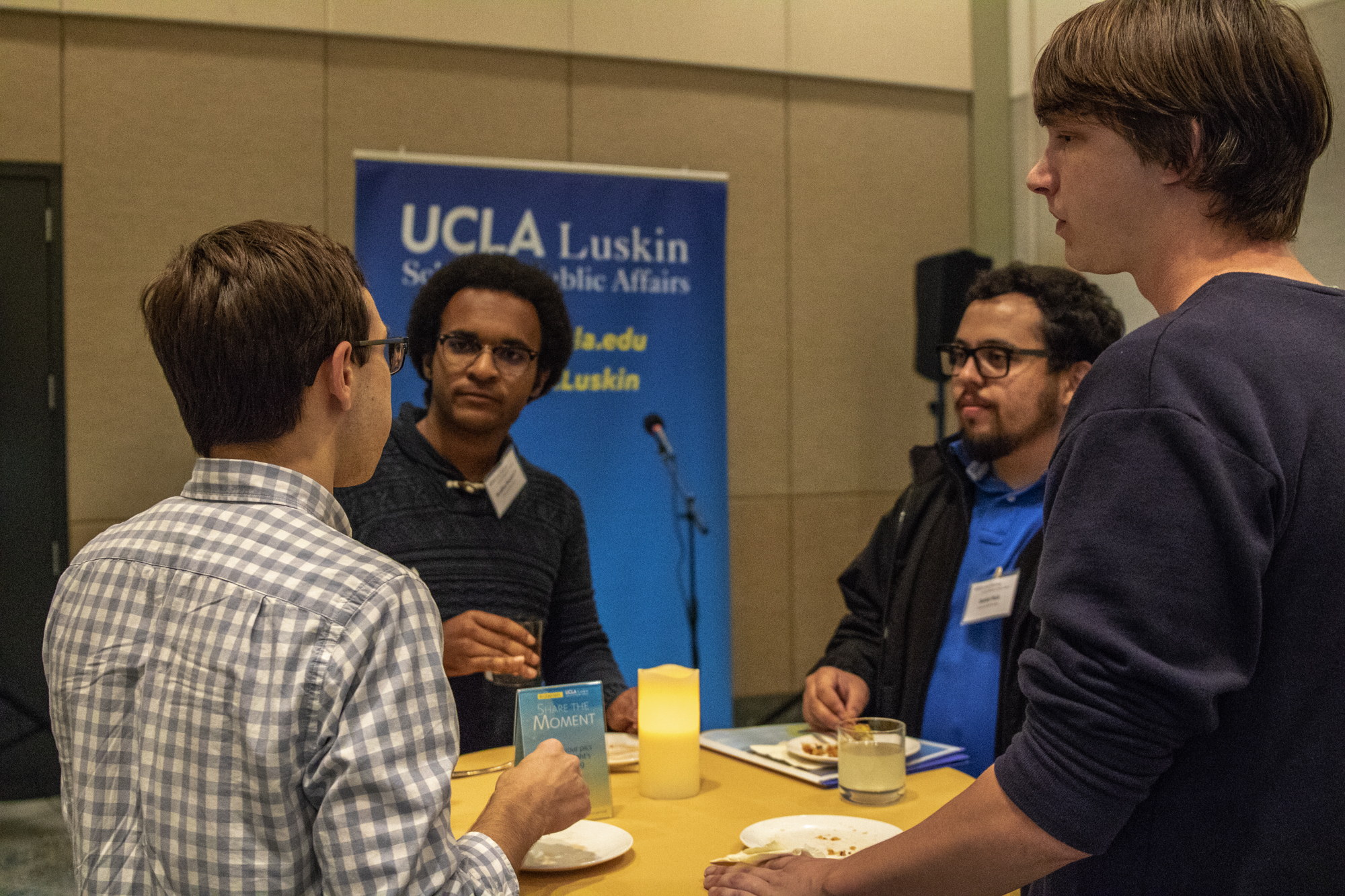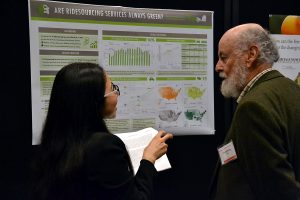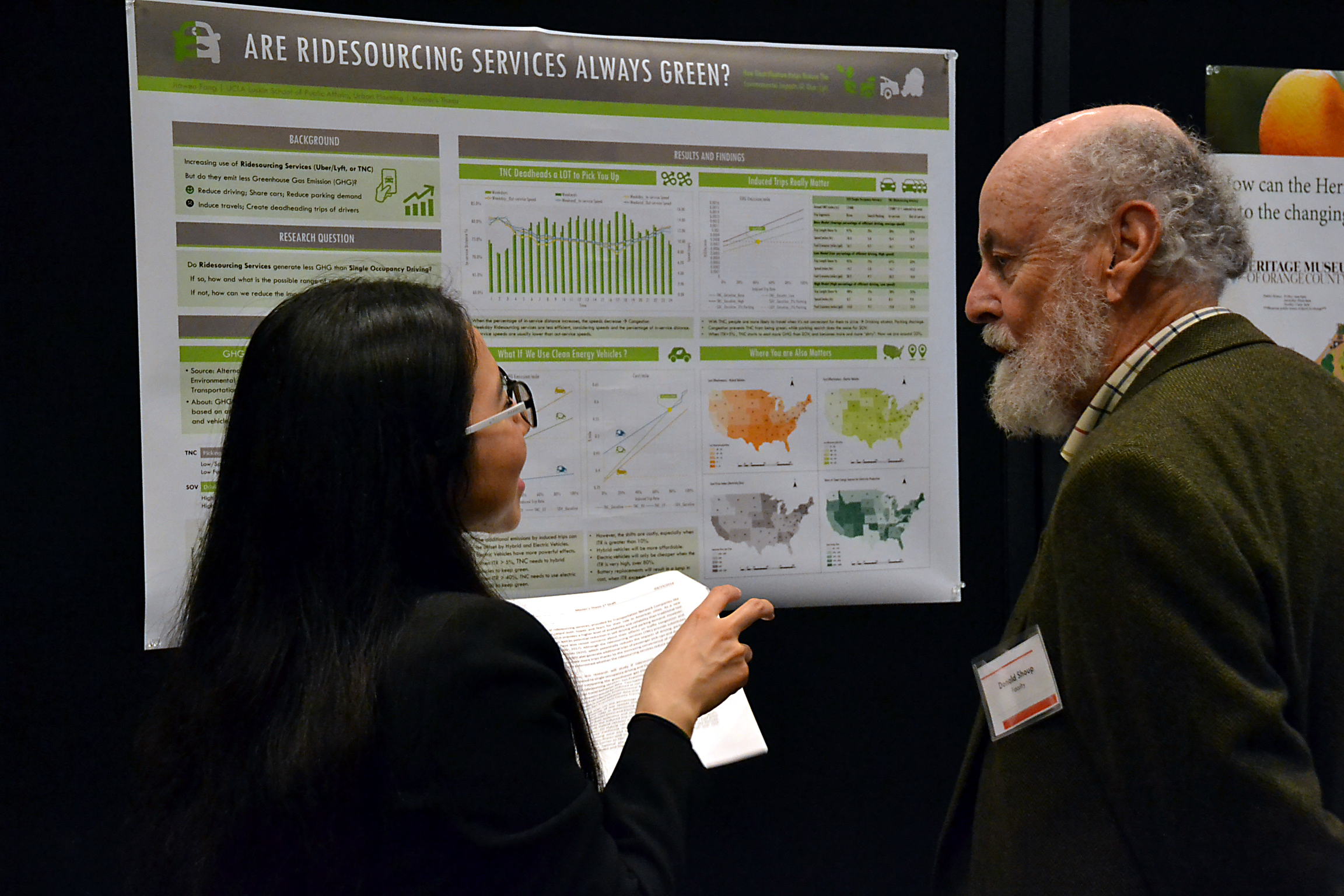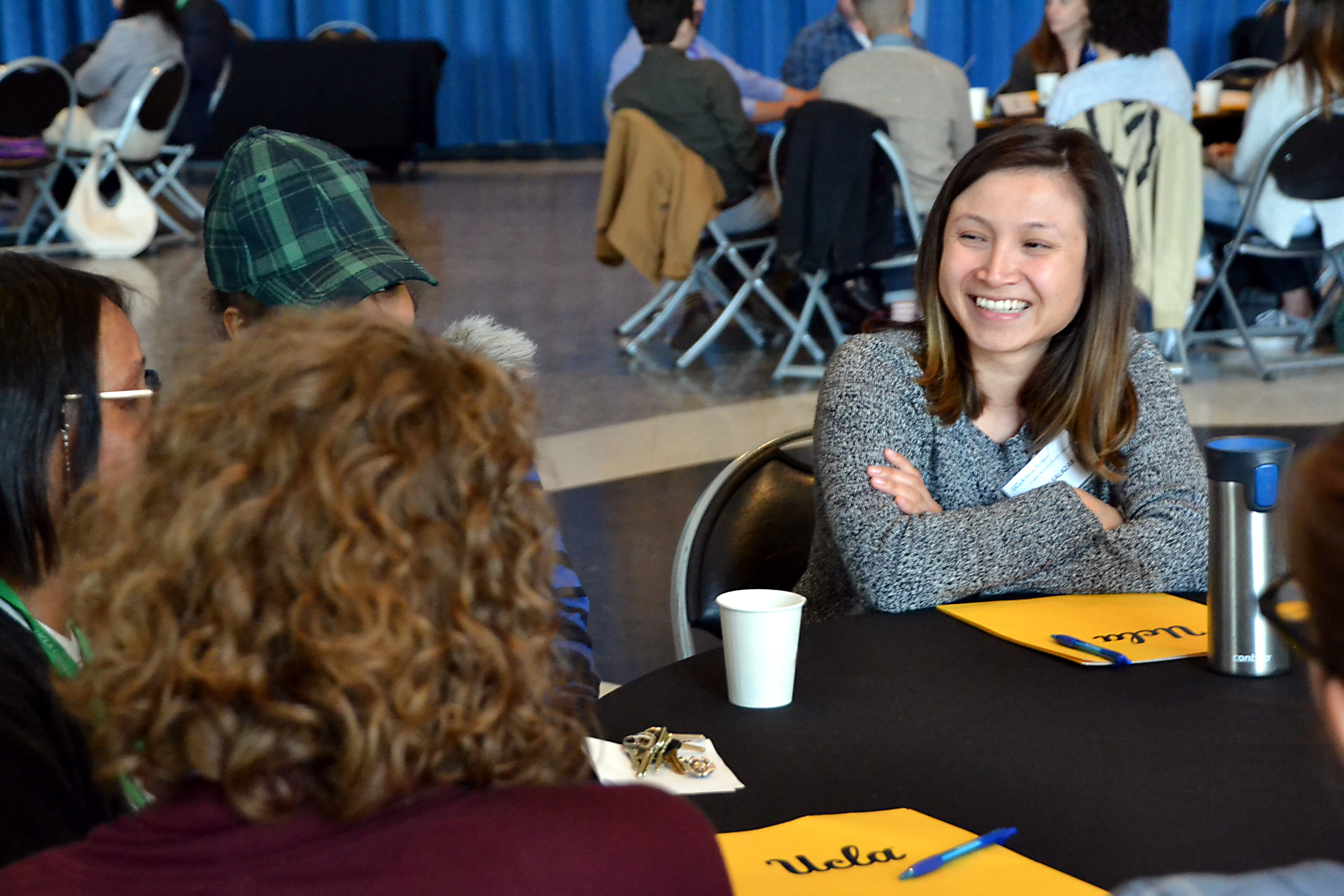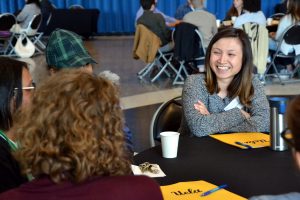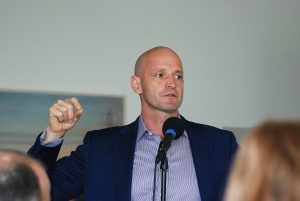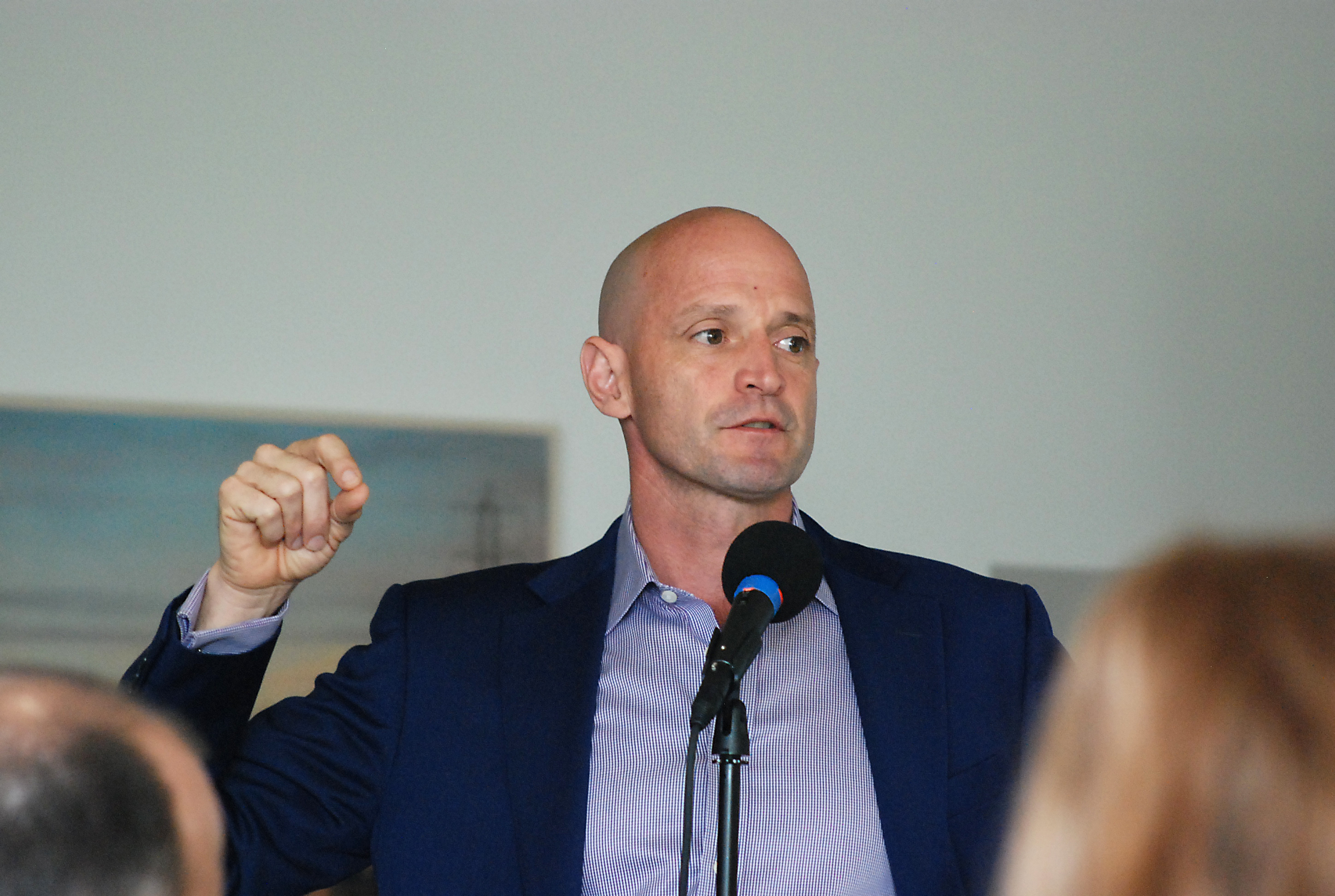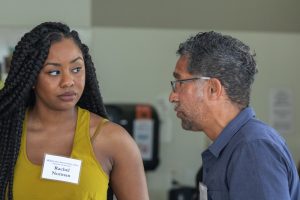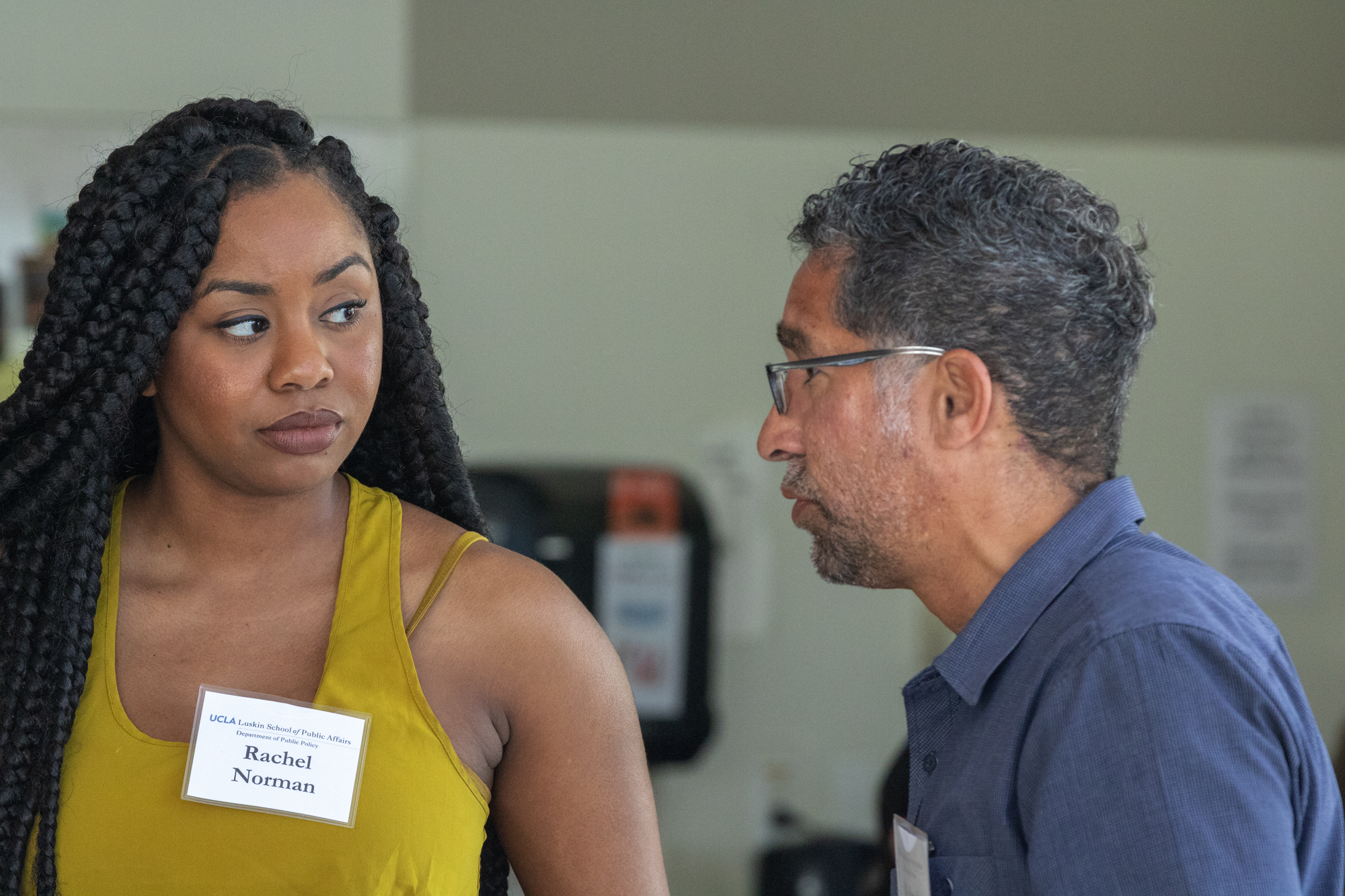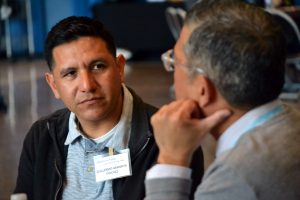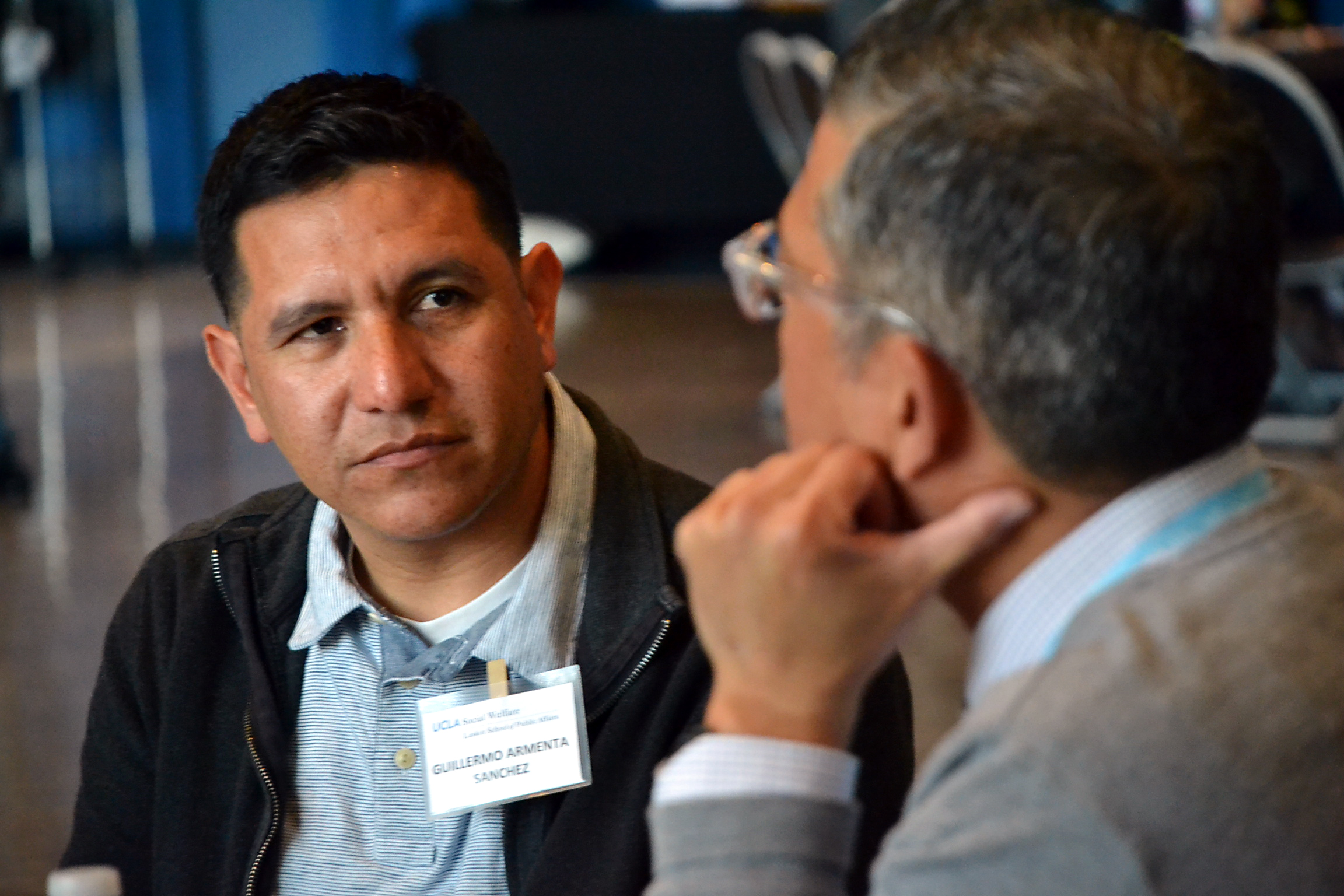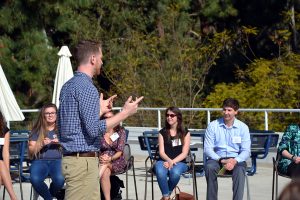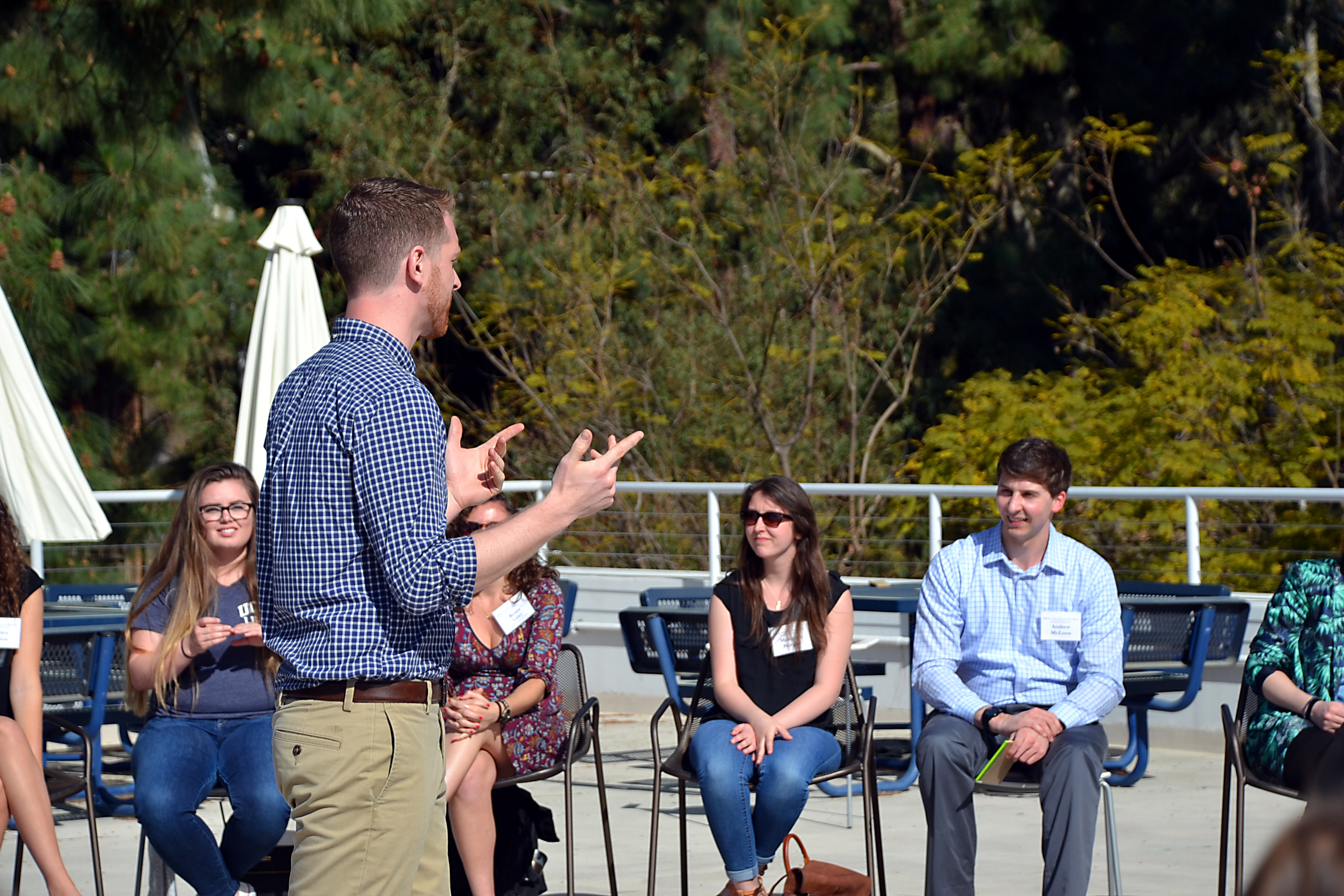The Art of Shaping Opinion: Lessons From Three Experts Visiting Public Policy faculty draw on rich life experiences to share their wisdom about influence, advocacy and persuasion with UCLA Luskin’s future leaders
By Stan Paul
The U.S. Constitution, by design, sets up a weak and limited government. In short, “it is set up to fail,” says William Schneider, a visiting lecturer this spring at the UCLA Luskin School of Public Affairs.
“The wonder is that it actually does work. What makes it work is public opinion,” says Schneider, a leading U.S. political analyst and professor at George Mason University’s Schar School of Policy and Government, who is teaching the undergraduate course “Public Opinion and Public Policy.”
Schneider, who has covered every U.S. presidential and midterm election since 1976 for numerous news outlets and publications, is among a group of top scholars from across the nation adding depth and breadth to the world-class faculty at the Luskin School.
Schneider’s class follows offerings from visiting professors Steven Nemerovski from Columbia University and Gary Orren from Harvard, who taught during winter quarter. All three visitors from the East Coast explored influence, advocacy and opinion-making as tools to effect policy change.
For Schneider, the Constitution works when there is “a strong sense of public urgency. In other words, a crisis.”
He explores this thesis — “and why the U.S. is more bitterly divided than at any time since the Civil War” — by looking at policy battles over civil rights, the financial crisis and terrorism. The course also focuses on the way public opinion has shaped policy on issues such as abortion, immigration, same-sex marriage, gun control, health care and military intervention.
A core element of American populism is the belief that politics is the enemy of problem-solving, he says. “That’s why we often elect political outsiders,” says Schneider, whose new book, “Standoff: How America Became Ungovernable,” will be published in May 2018. Schneider hopes his students will learn that “there is a reason why you can’t run government like a business. Business is not a democracy.”
When Orren, the V.O. Key, Jr., Professor of Politics and Leadership at Harvard, arrived at the Luskin School this winter, he made a convincing case for taking his graduate-level class, “Persuasion: The Science and Art of Effective Influence.”
“Persuasion lies at the heart of our personal and professional lives, whether the goal is to convince one person in a face-to-face encounter, influence a small group in a meeting, sway an entire organization or win over the public,” his course description said.
“It is challenging enough to lead those who agree with us,” says Orren, who has taught at Harvard for nearly half a century and also worked as a political advisor in local, state, national and international election campaigns. “But inducing others to willingly follow us when they are initially skeptical or opposed to our goals — persuading them — is the greatest challenge facing aspiring leaders.”
That pitch, and a recommendation from a Harvard alum she knows, convinced second-year MPP student Farah Setyawati to take Orren’s course.
“I like the course because it has a unique exposure to psychology. It got me thinking a lot about human behavior,” Setyawati says.
She now pays attention to body language and “reading the room,” and recognizes the importance of knowing the client. She also likes the required “three-minute pitch” exercise that allowed her to practice her presentation skills.
When Nemerovski brought his popular undergraduate course, “Advocacy and the Legislative Process,” from Columbia to the Luskin School, he immediately brought up the dreaded “L word” — “how society feels about lobbyists and are they the scourge of the earth or something. We talk about that up front and get past that immediately,” Nemerovski says. “Then the whole class is about strategy, … the role of advocacy and the tools needed to navigate successful outcomes.”
In addition to a career as an academic, the Columbia professor has worked as a political lobbyist, TV program host and author of “Third Party,” a series of political novels. He drew on that vast experience to bring in a number of guests with first-hand experience in advocating for legislation: a state representative from Illinois; two former California Assembly members; and Dan Glickman, a former member of Congress from Kansas, U.S. secretary of agriculture in the Clinton administration, and former head of the Motion Picture Association of America.
When students have “heard four or five people in this industry say it’s all about trust, your word is your bond, when they leave the class … they’re going to understand what this is about — trust and word and bond,” Nemerovski says.
“One of my guest speakers actually commented that my class asks better questions than the more sophisticated groups he speaks to. That really speaks for the class and their enthusiasm for the speakers,” he says.
UCLA undergraduate student Axel Sarkissian says the course has been among the most interesting he has taken and has given him a better understanding of “how lobbying is done, an important lesson for those of us interested in government and for anyone interested in public engagement.”
“I have particularly appreciated Professor Nemerovski’s efforts to integrate practitioners — politicians, lobbyists and others — into the course. Hearing their perspective on how they interact with each other and what effect this has on policy has been fascinating,” says Sarkissian, who is completing the Luskin School’s undergraduate minor in Public Affairs.
Nemerovski challenges his students to become “citizen lobbyists.” During winter quarter, they were asked to lobby their congressperson on Deferred Action for Childhood Arrivals (DACA), also known as the Dream Act.
“I can’t tell them what to think — whatever side they may be on — so they have to decide what they think and they have to act on it,” says Nemerovski, who notes that part of the exercise is to wrangle not only with the issue but what actions they need to take. “I’ve been watching them struggle with it — ‘how am I really going to do this?’”
Nemerovski also places students on each side of a bill. Some must develop strategies to pass it, others to defeat it.
“They will walk in with a strategy and I will poke holes in it,” Nemerovski says.
But he adds: “I always tell my kids the first day of class they’re going to have fun.”
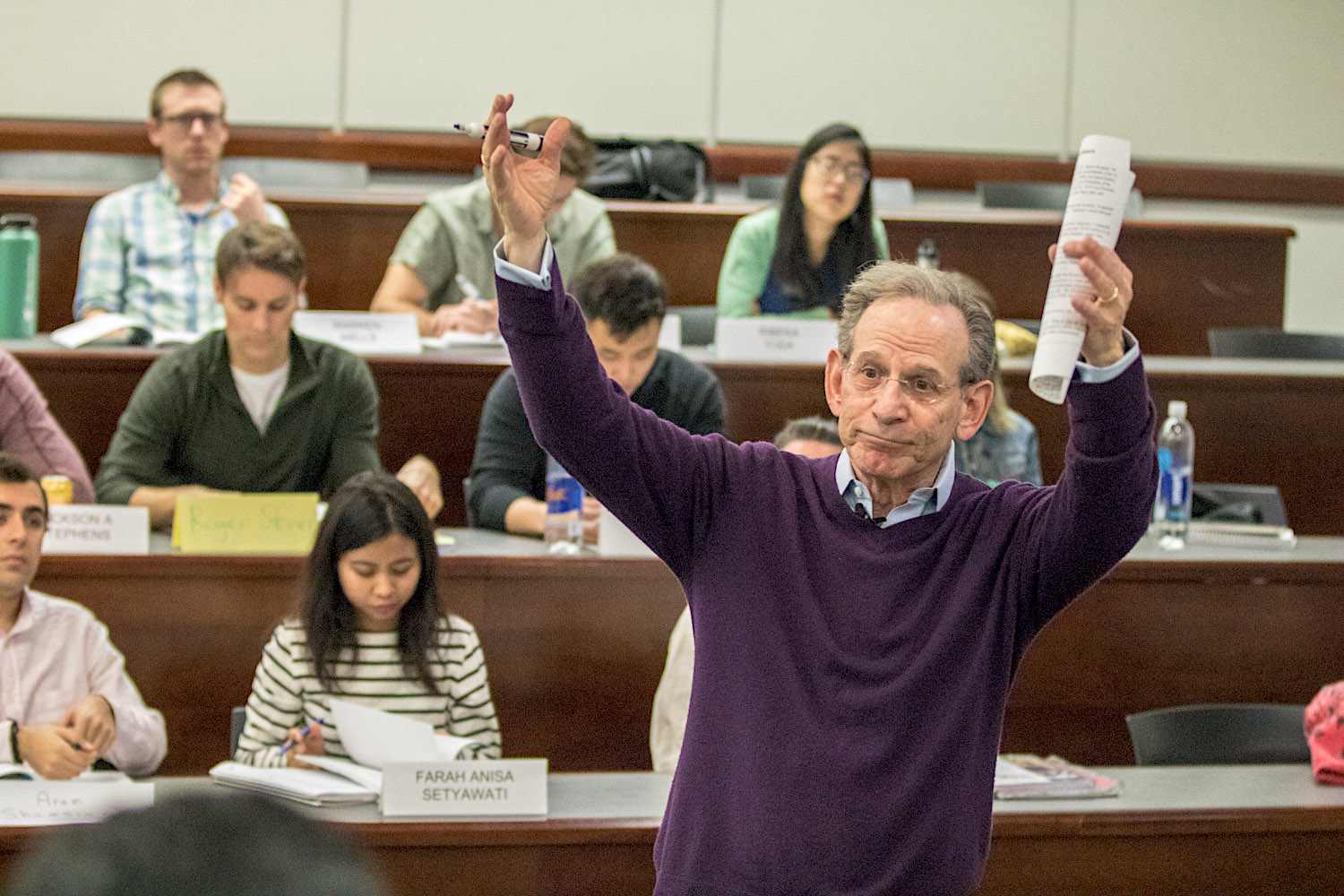
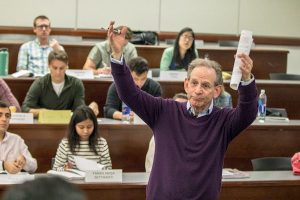
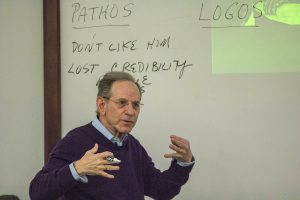
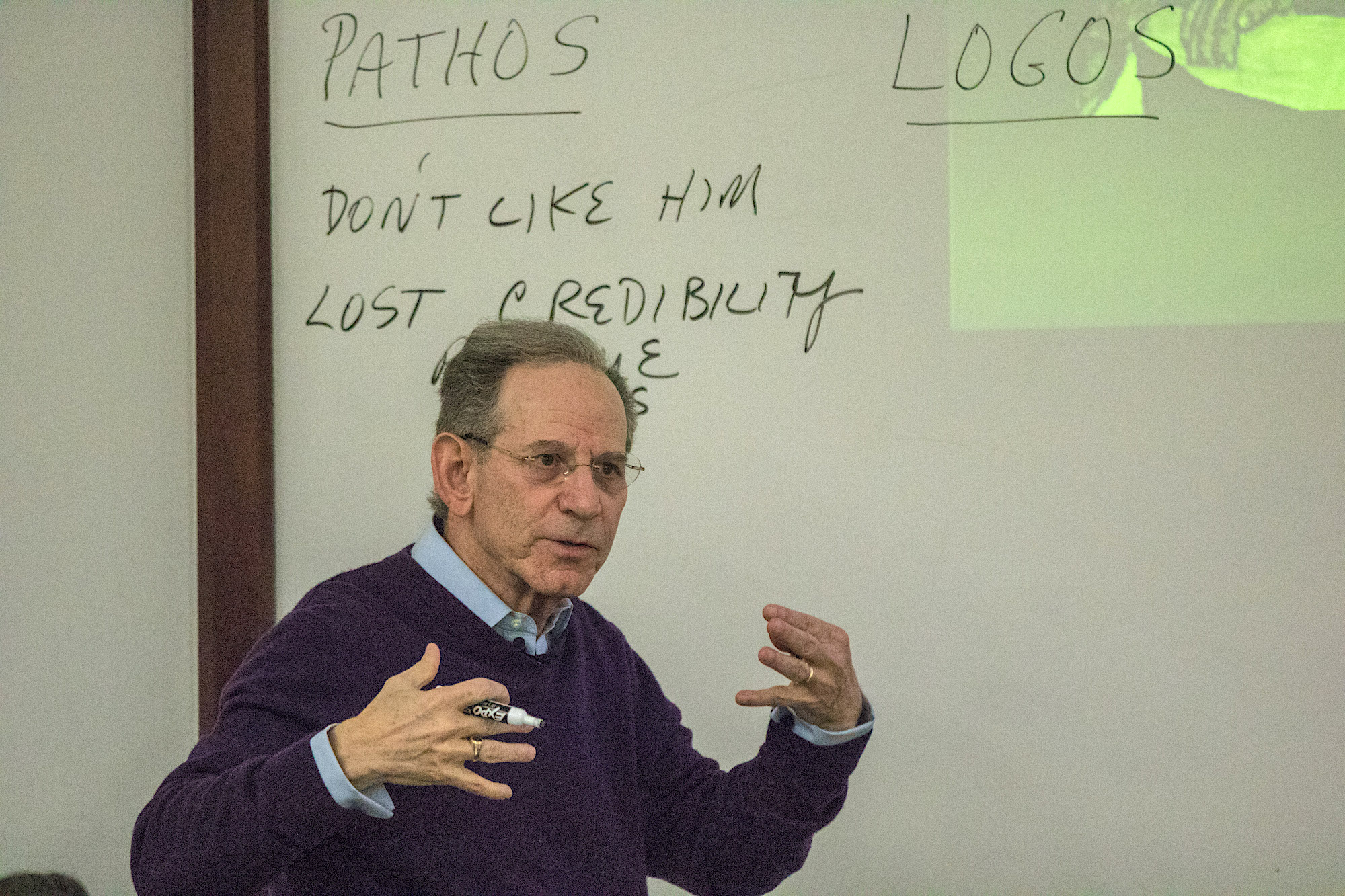
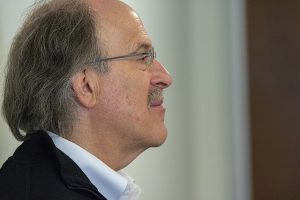
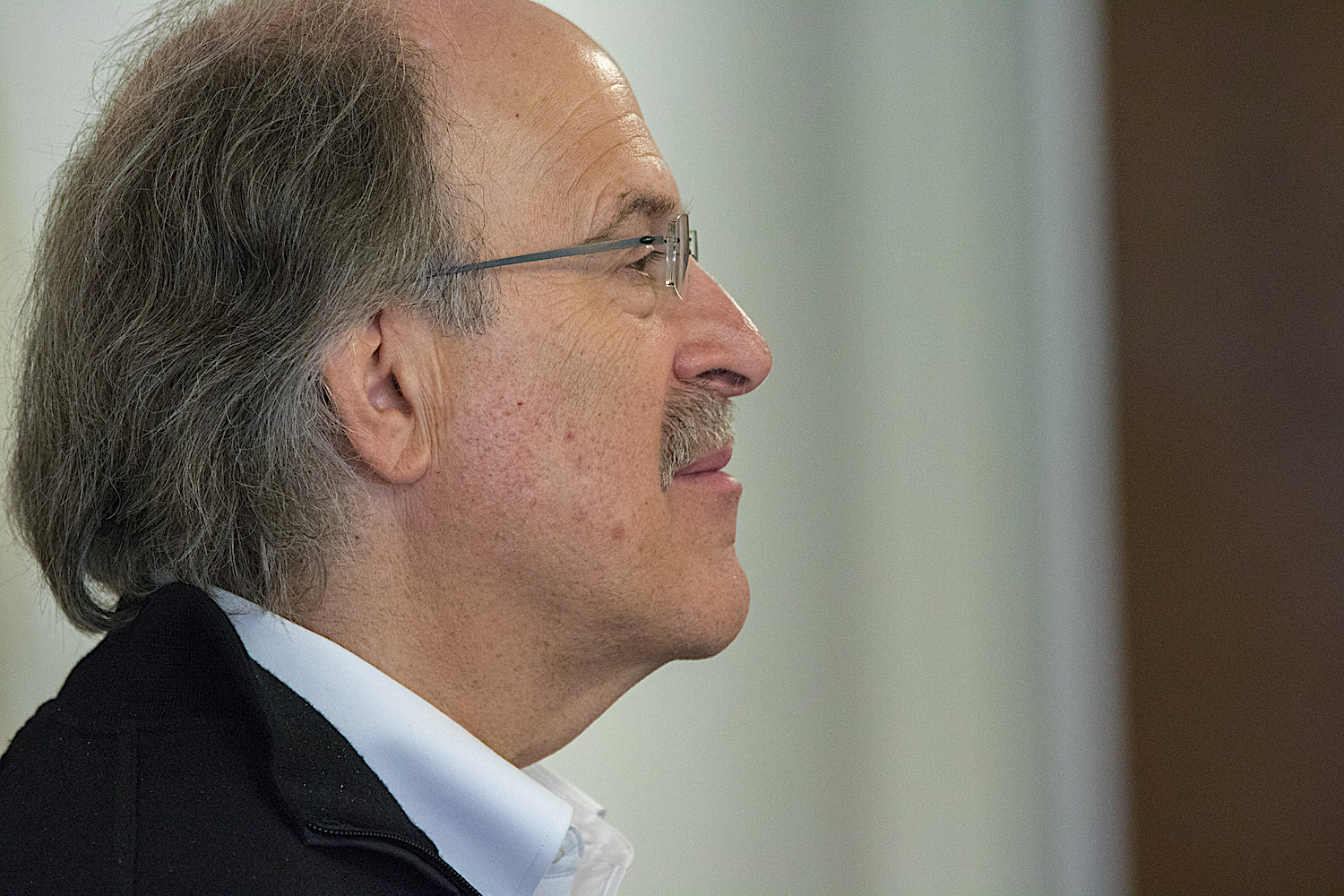
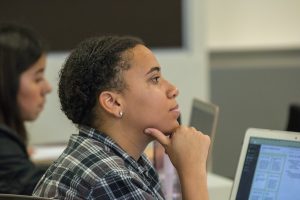
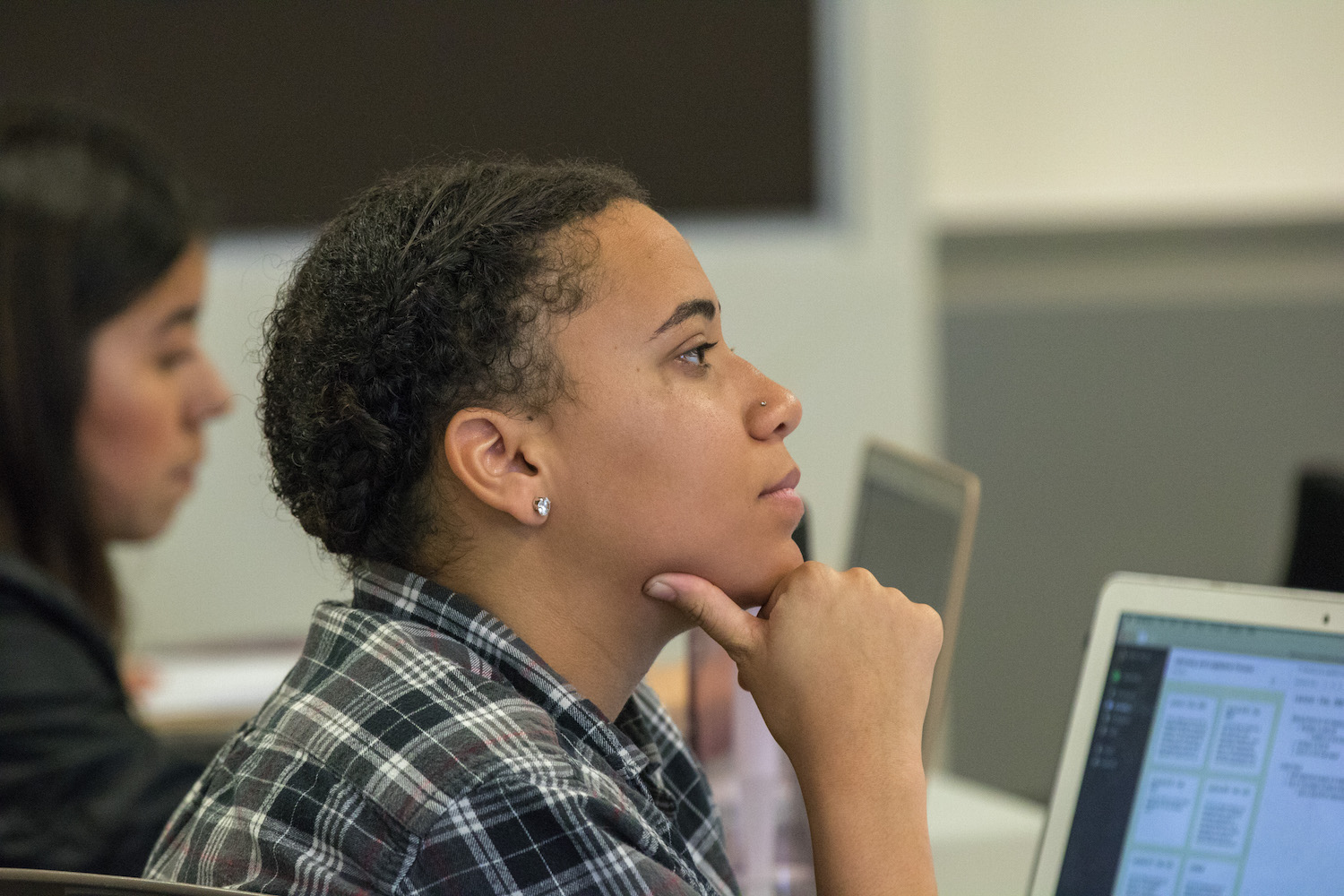
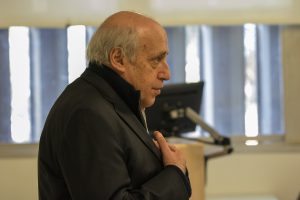
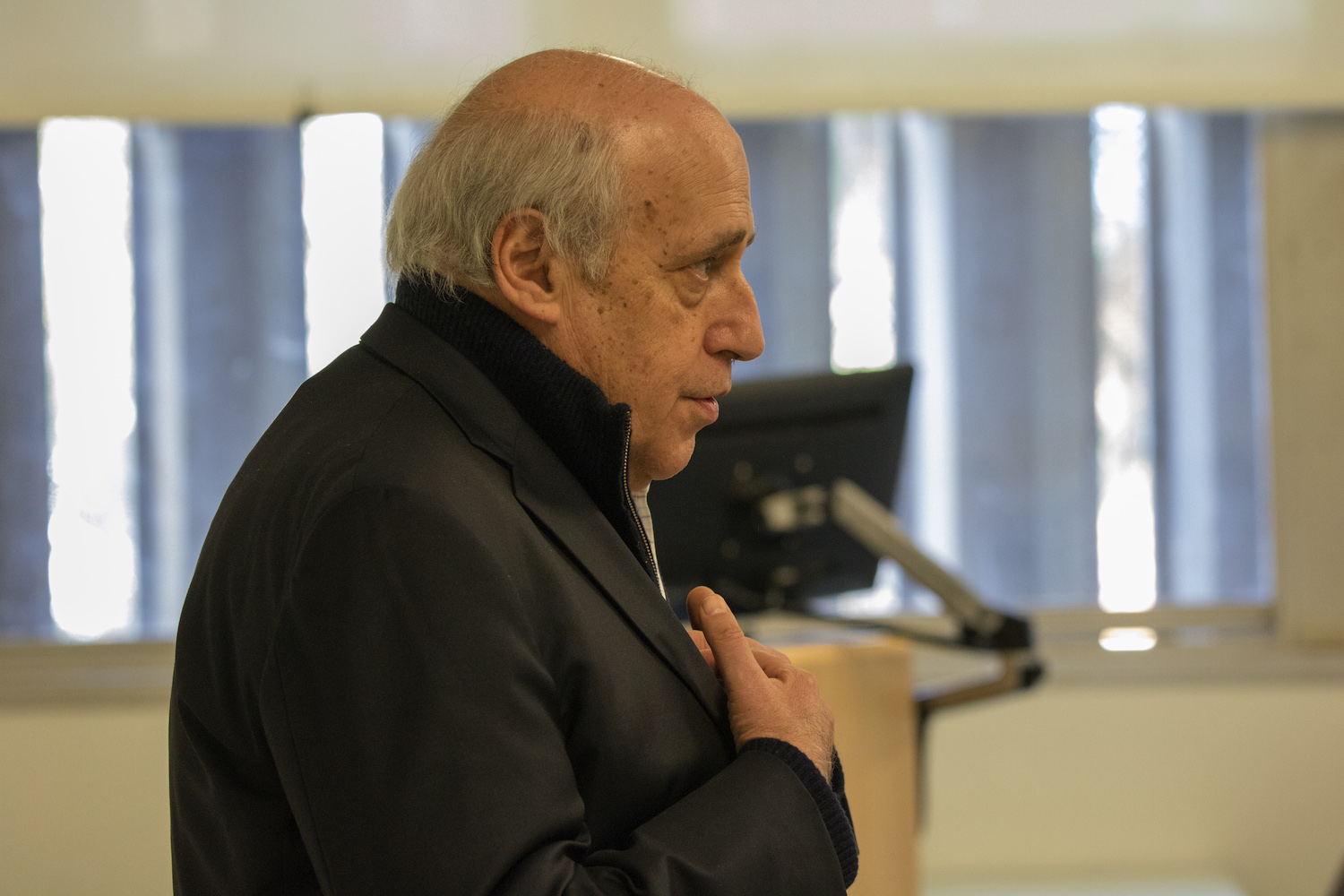
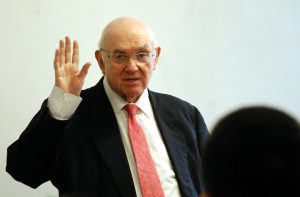
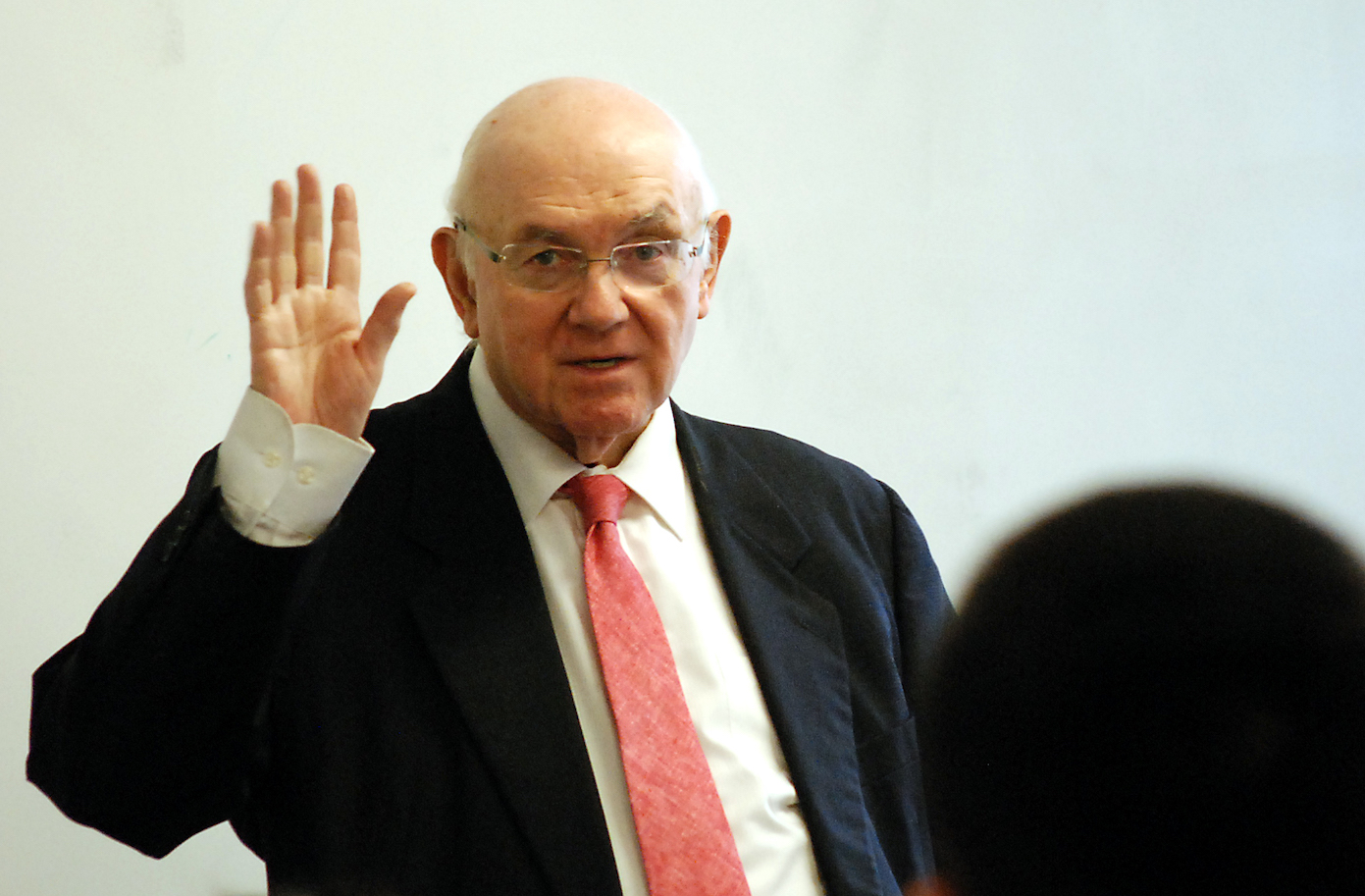
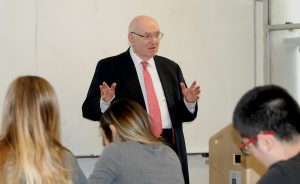
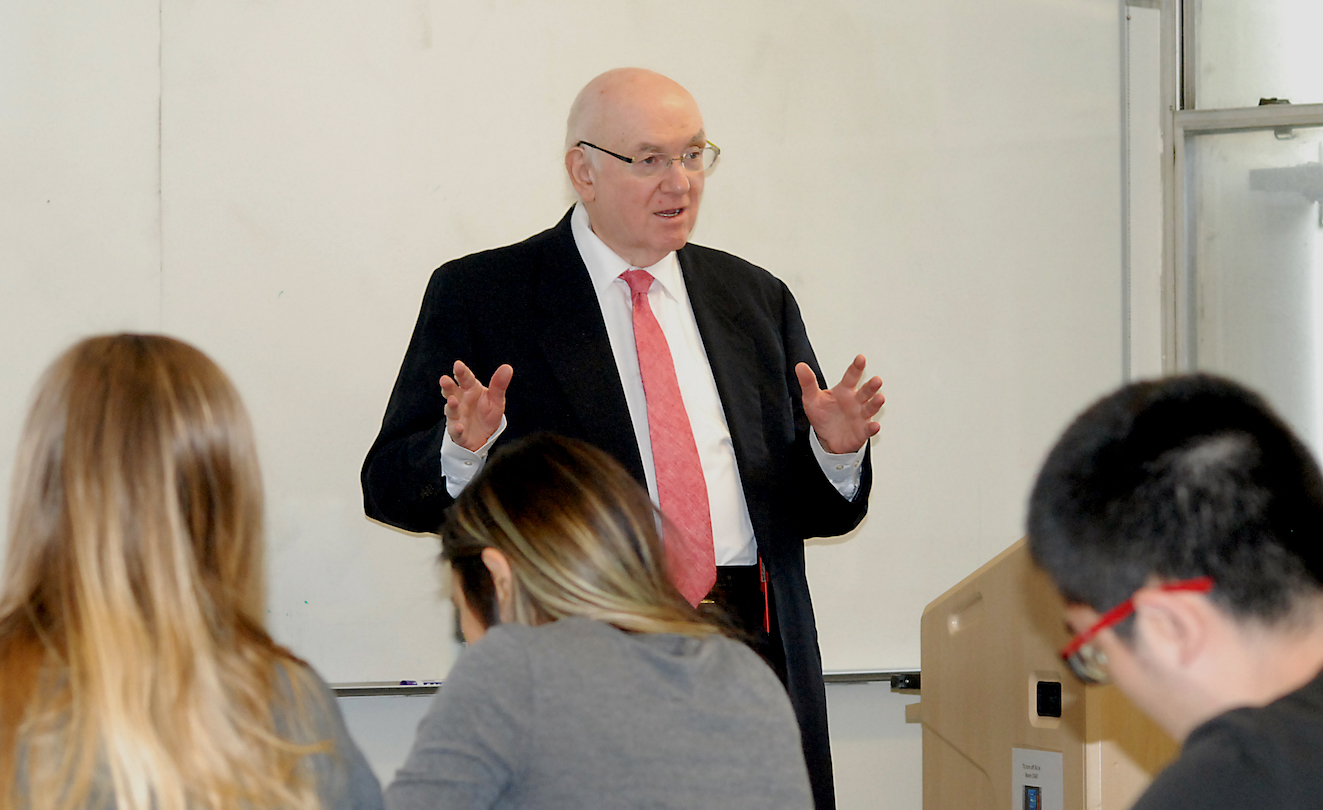
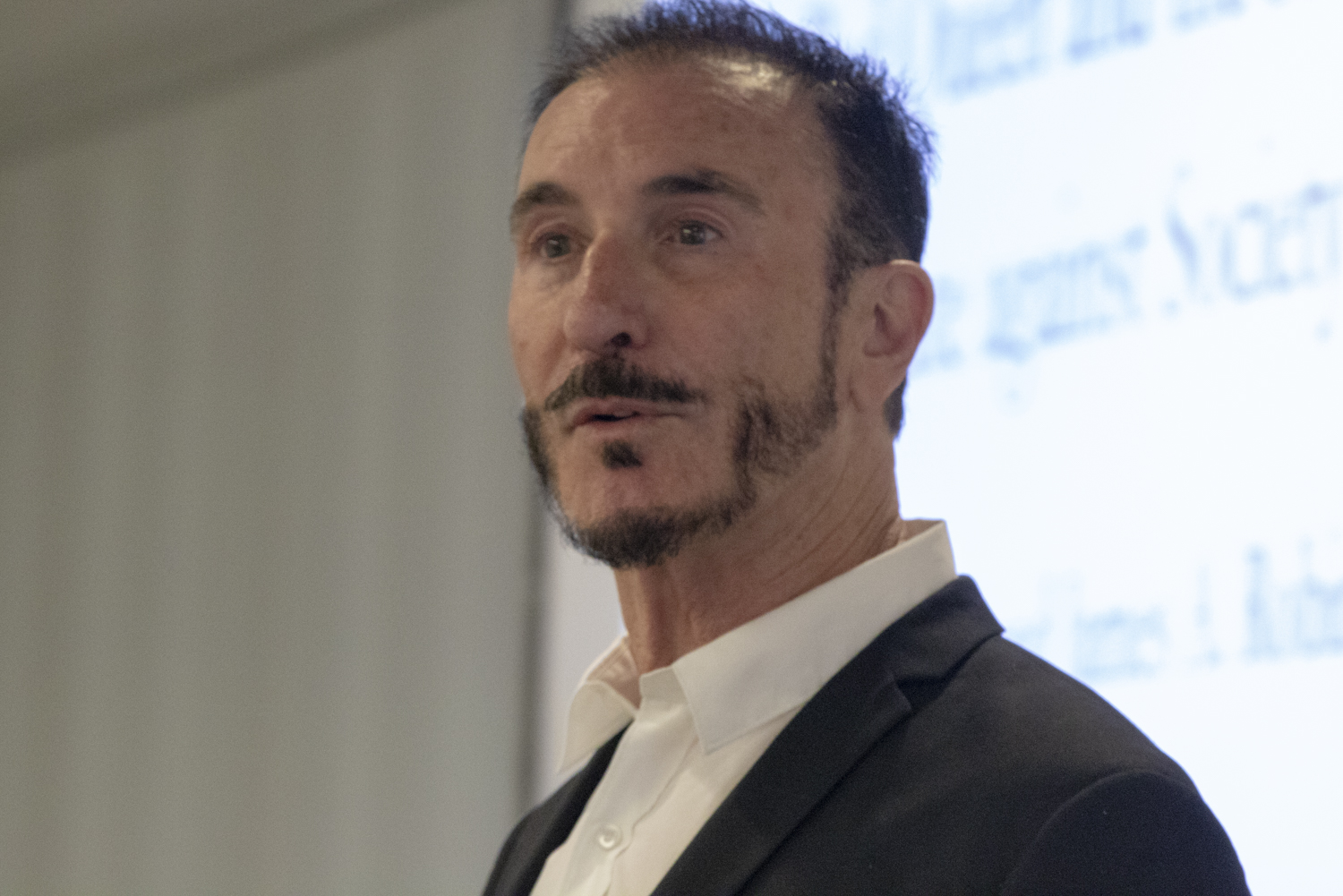
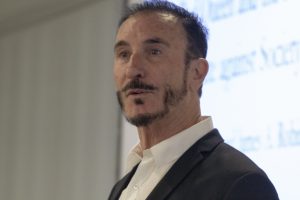
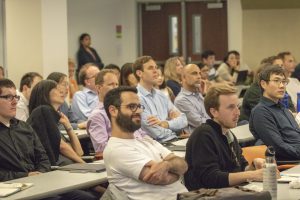
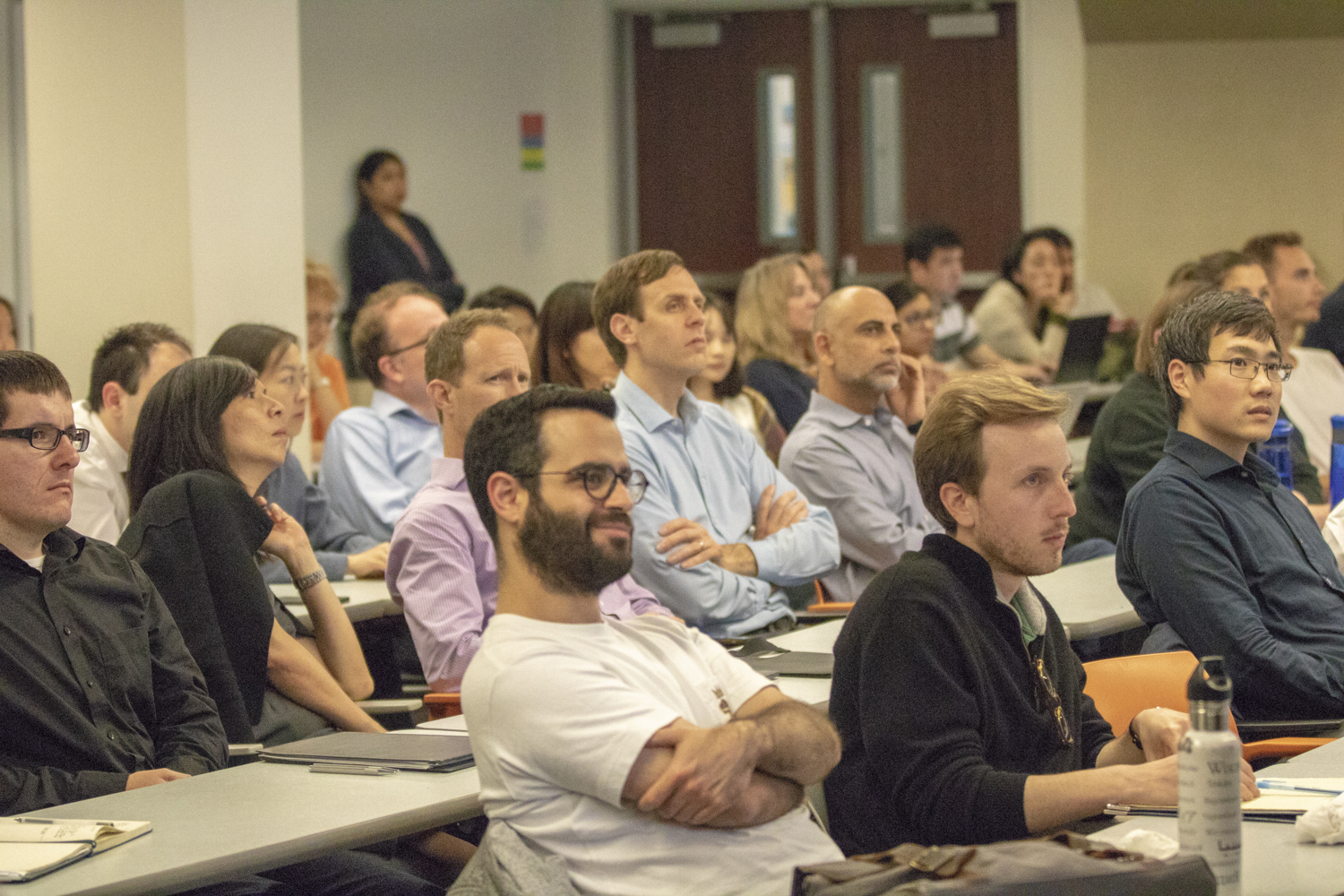
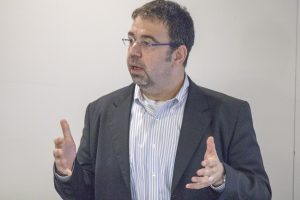
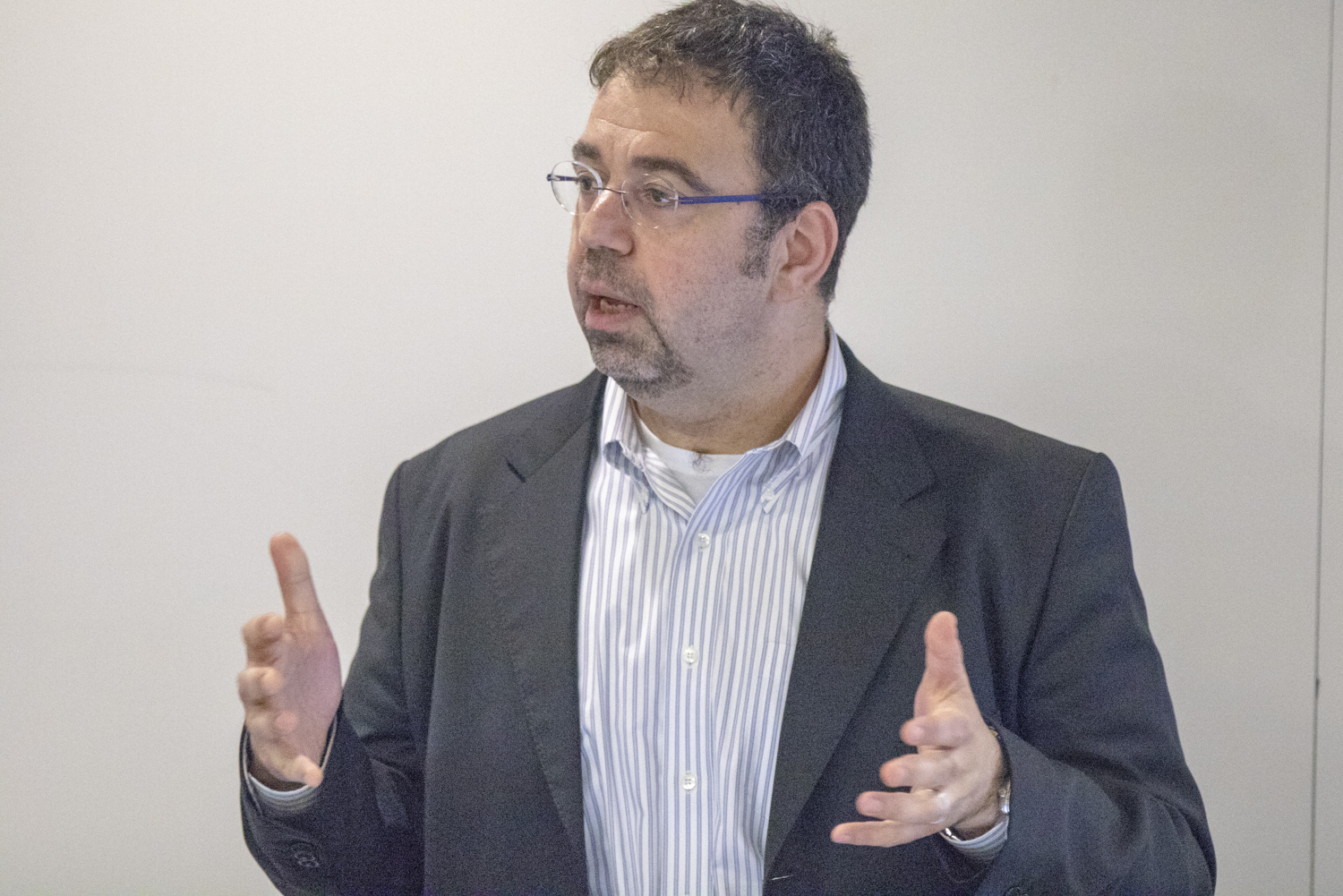
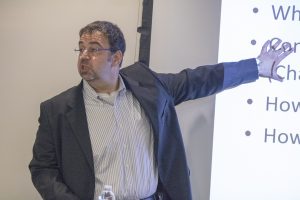
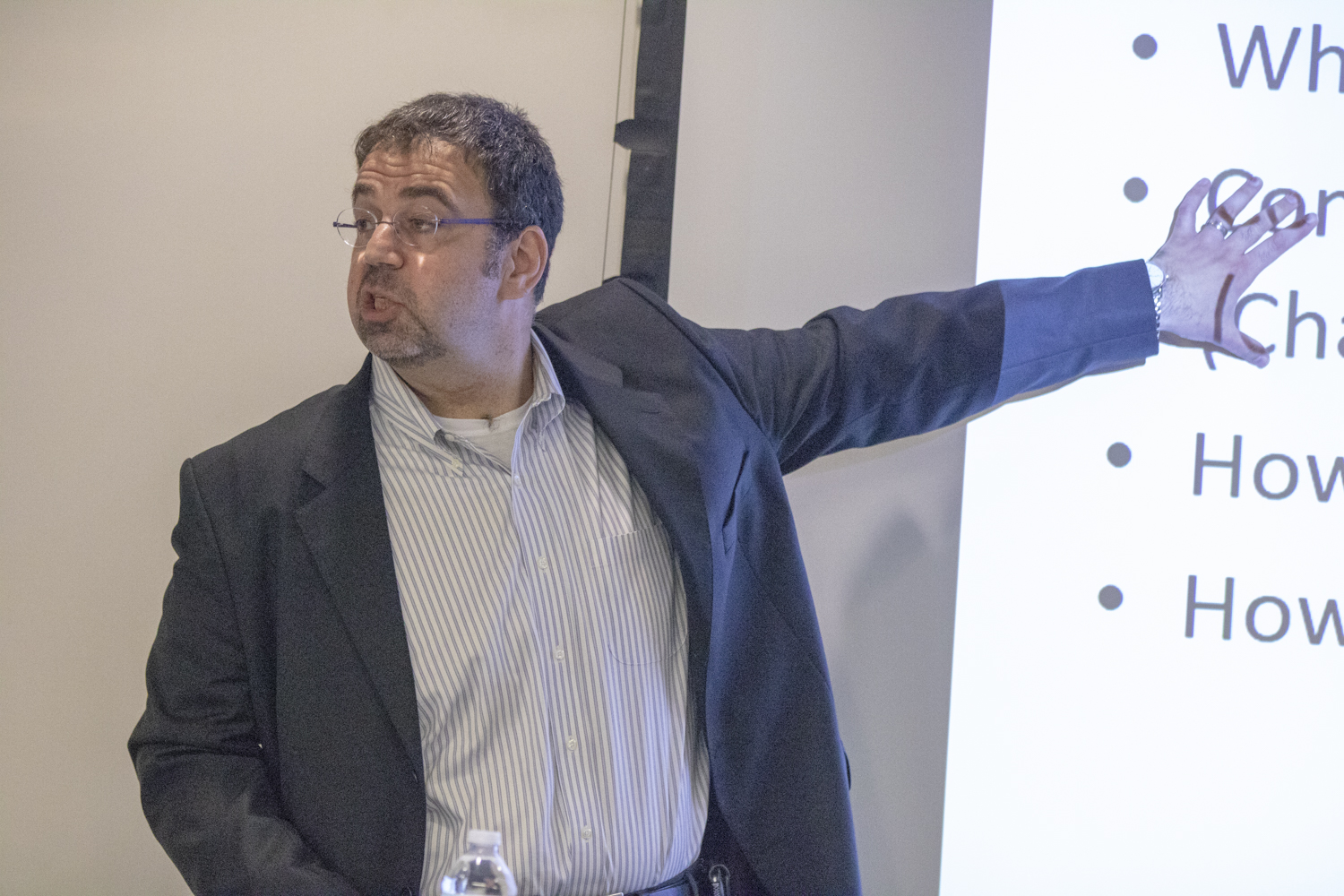
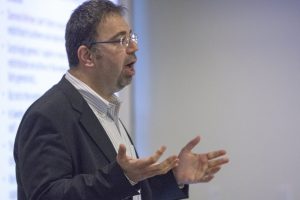
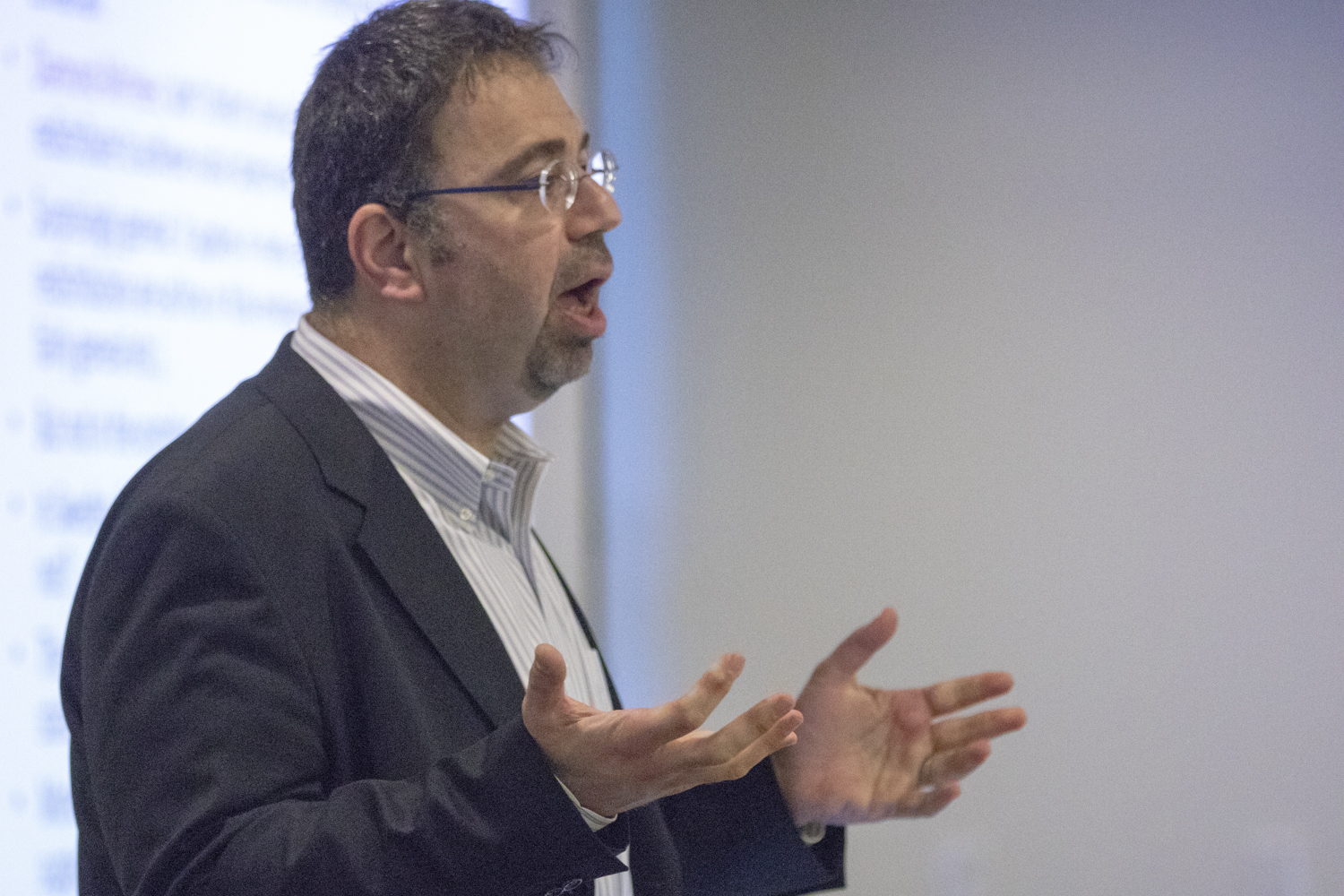
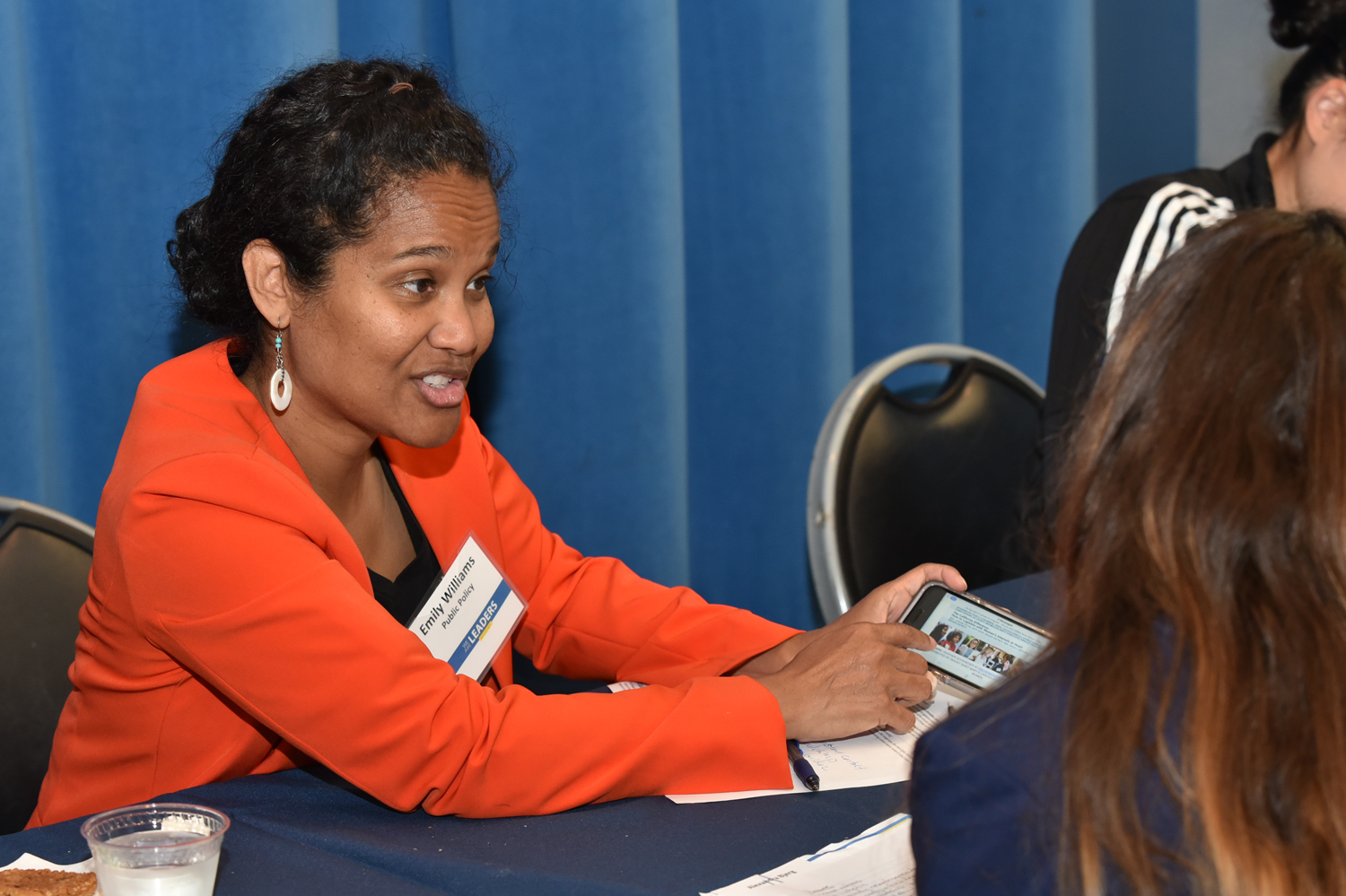
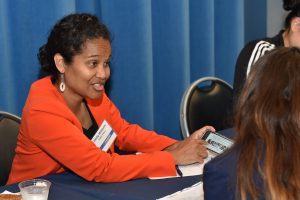
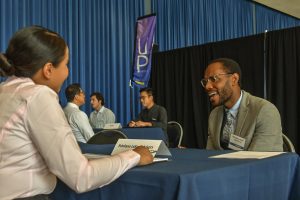
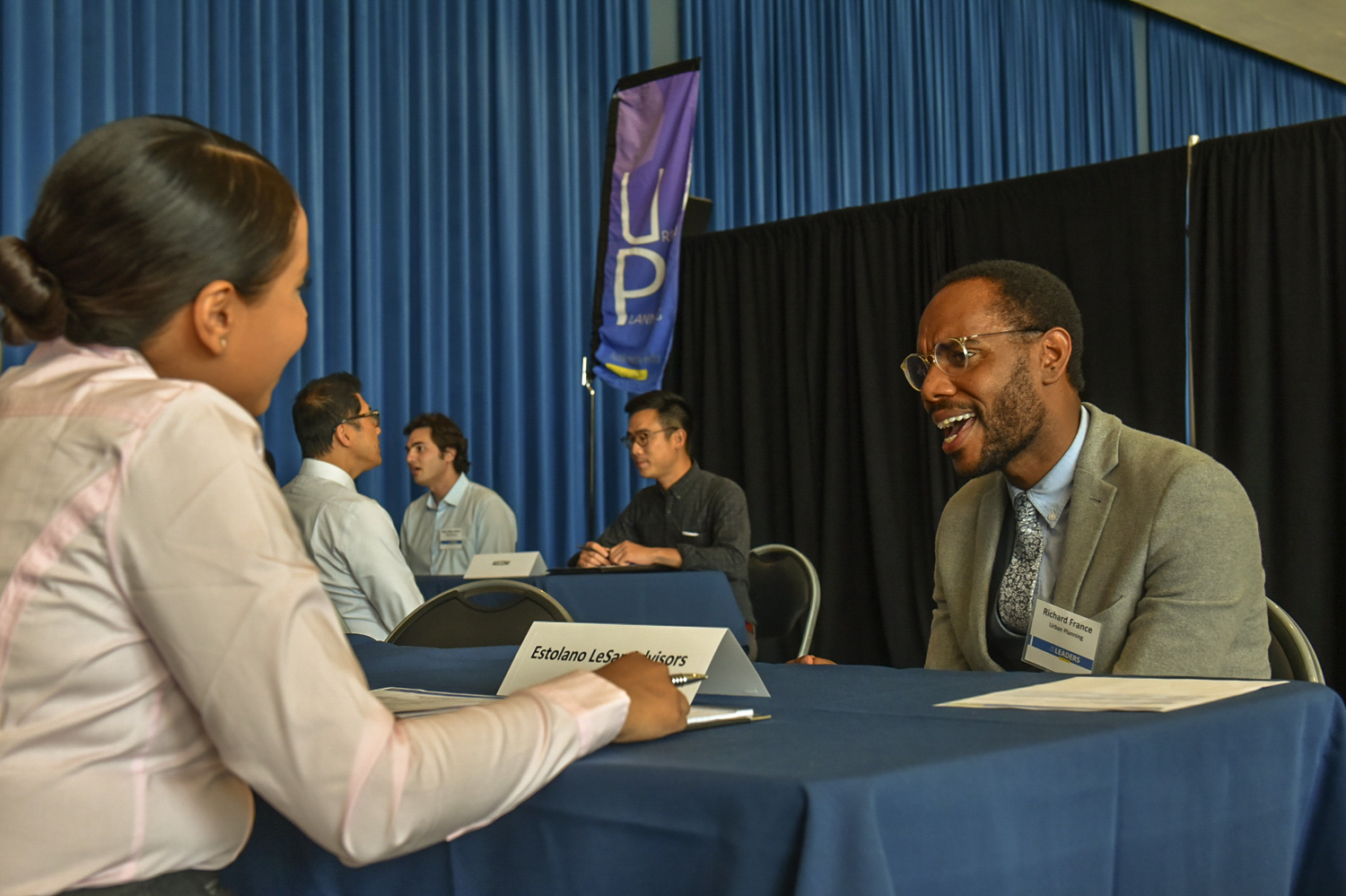
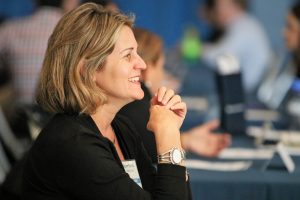
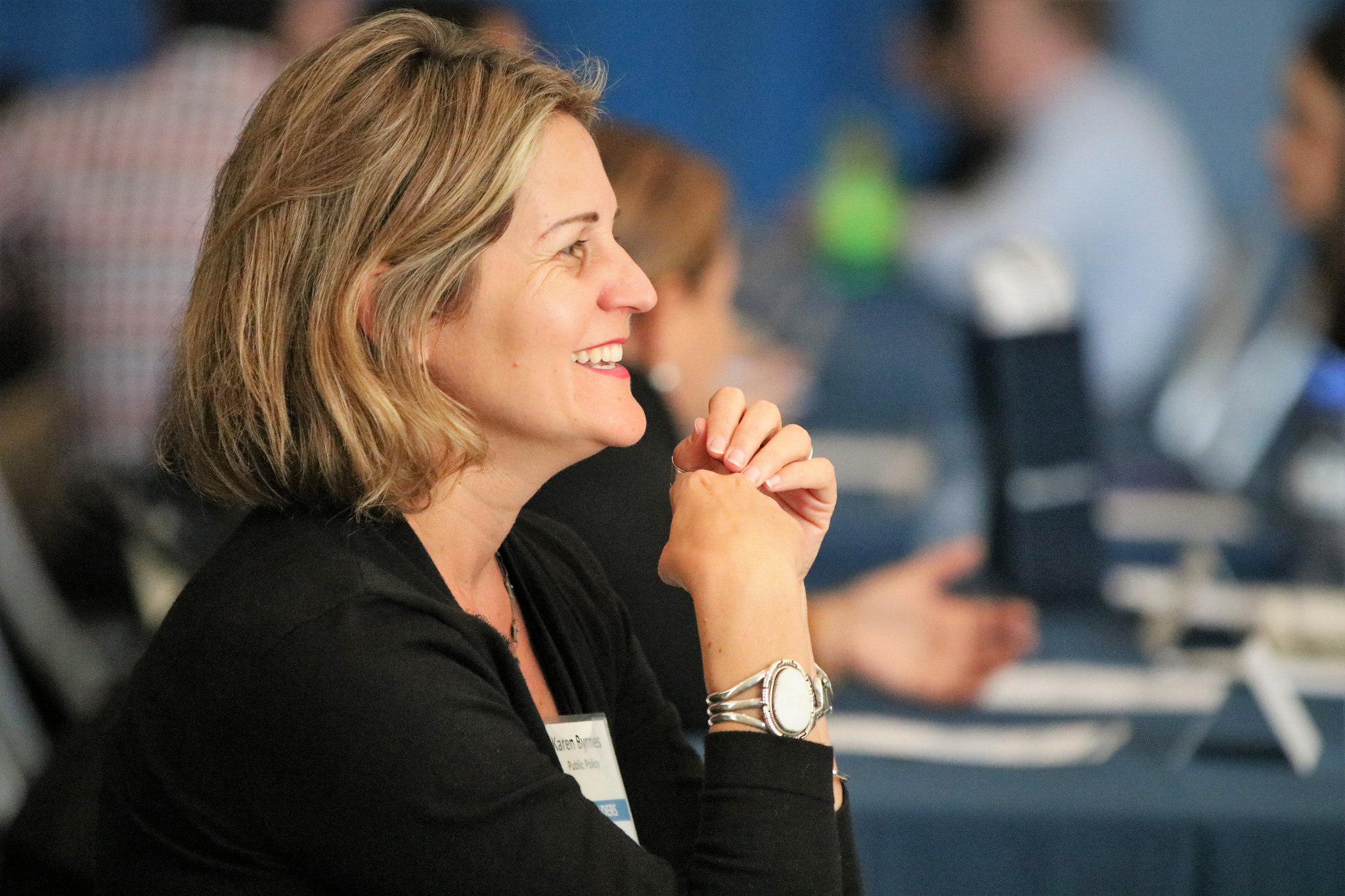
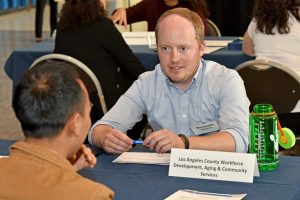
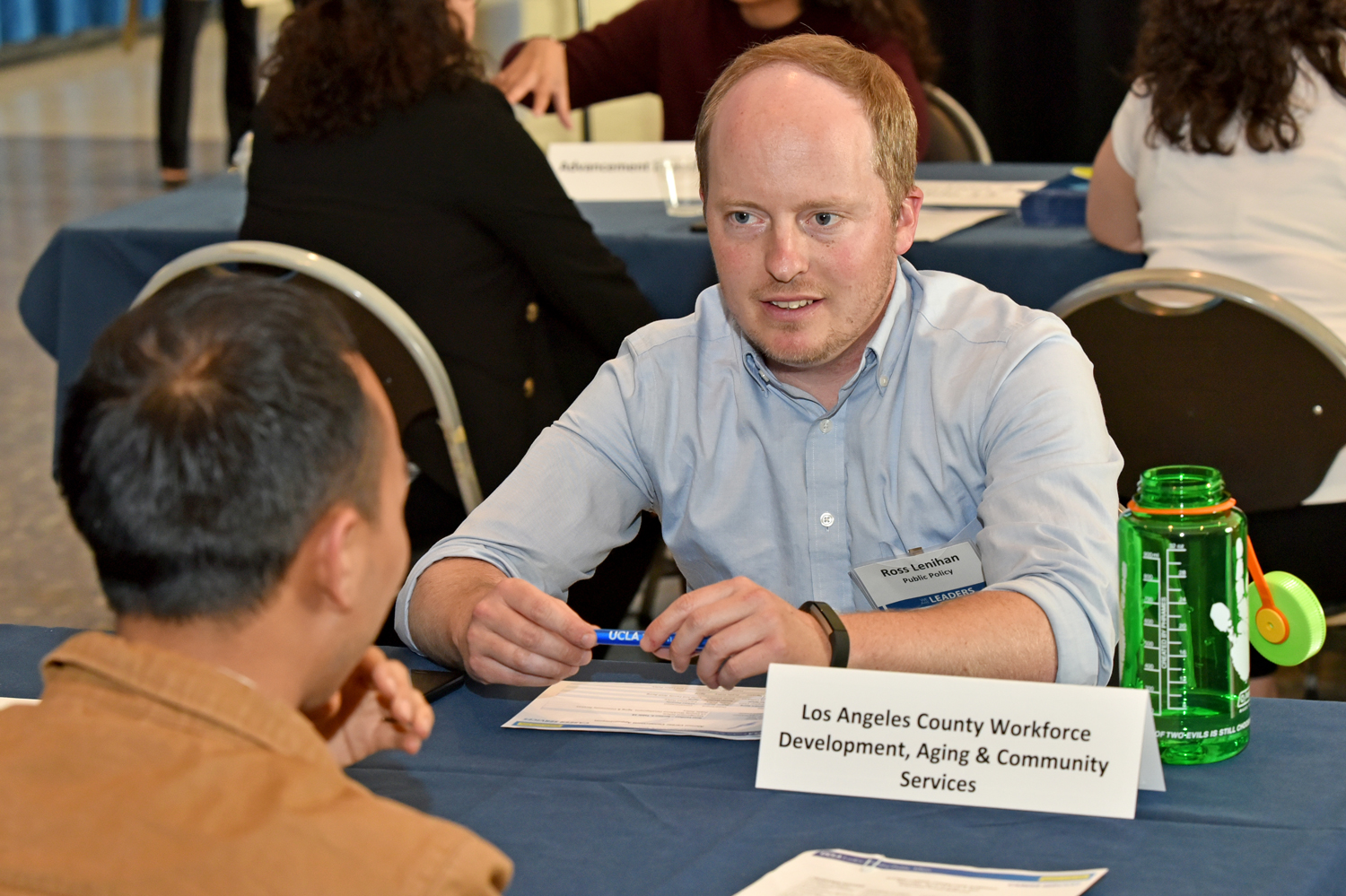
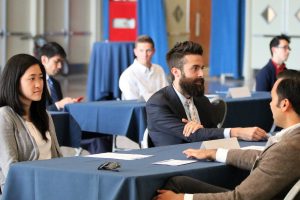
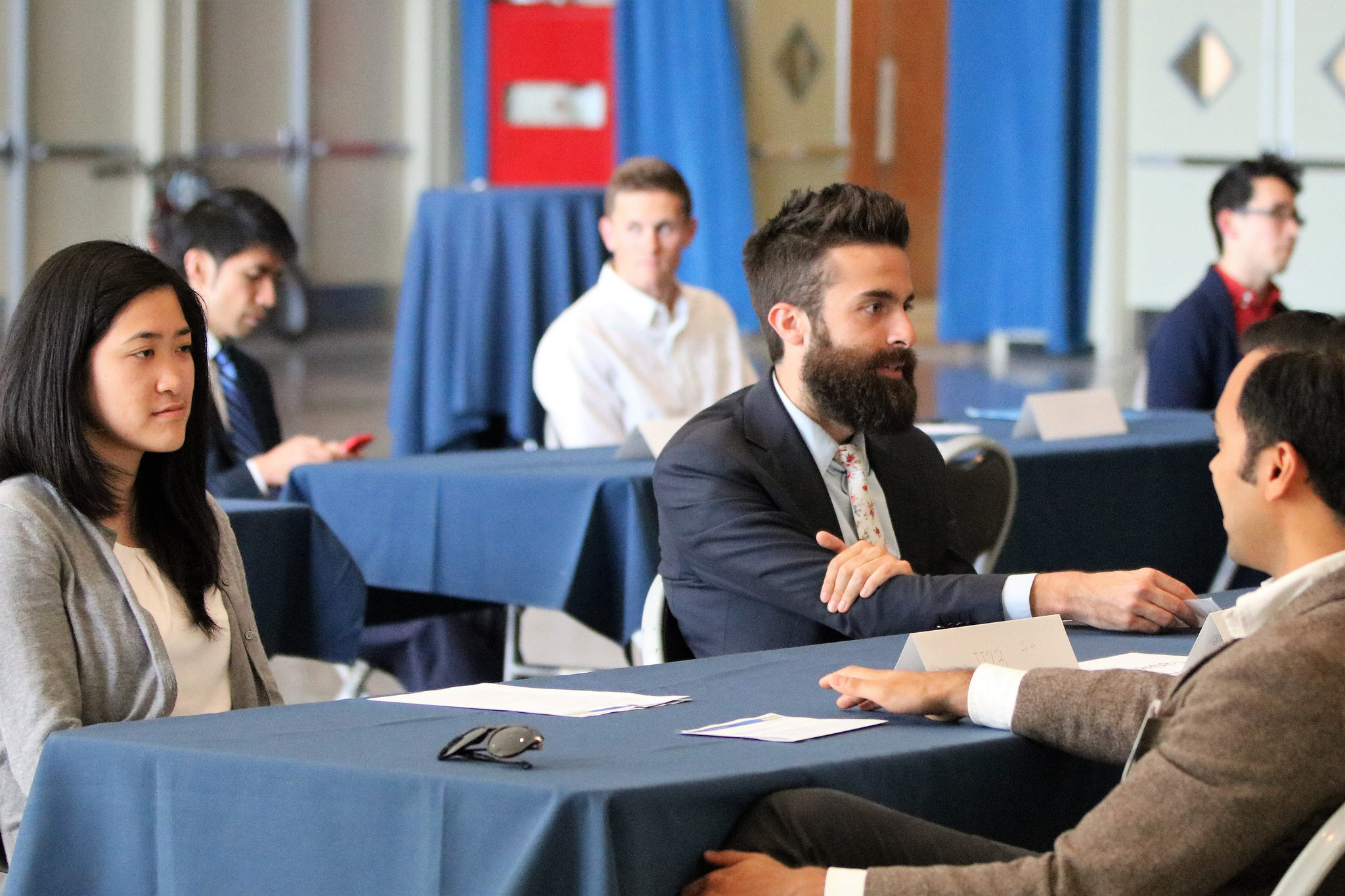
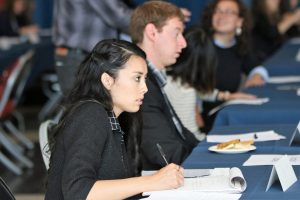
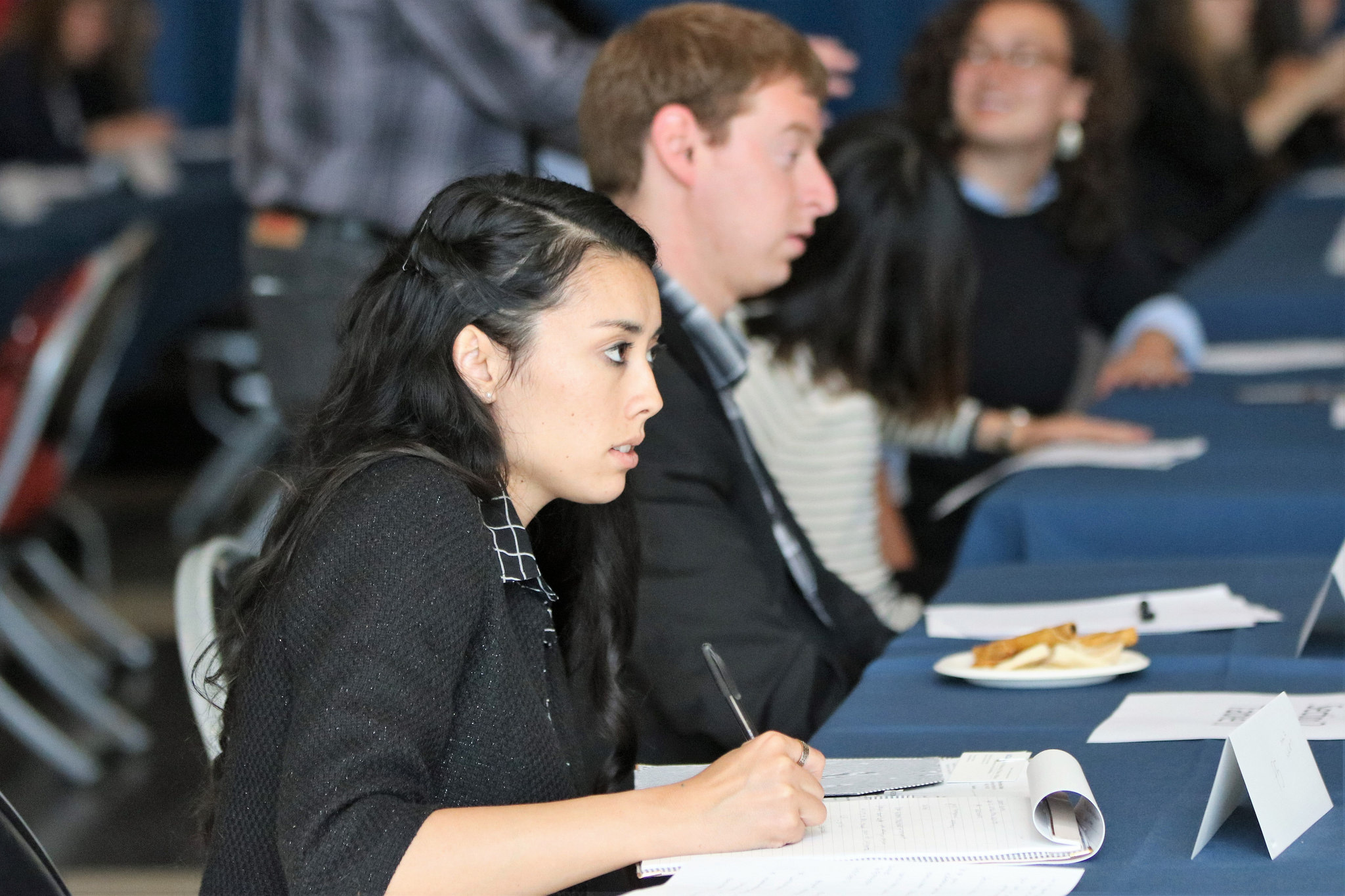
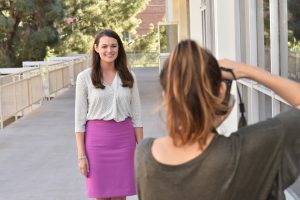
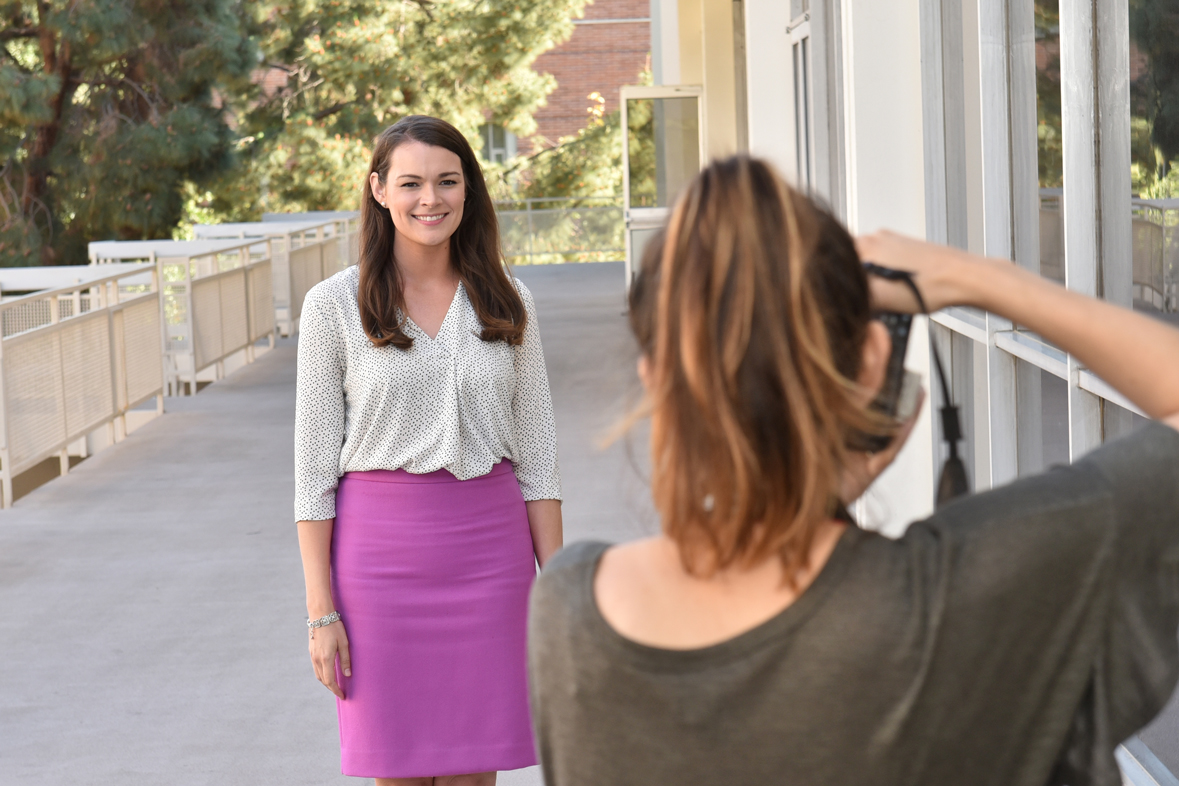
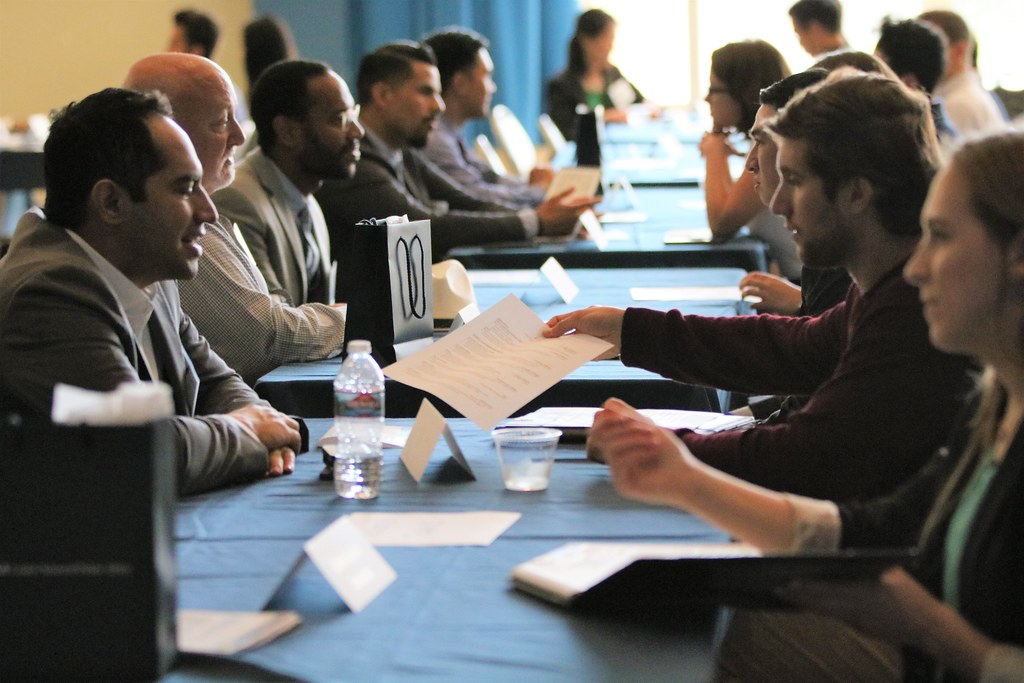

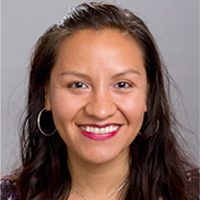 Amada Armenta: She is returning to UCLA where she completed her PhD in sociology, and will join Urban Planning in the fall. Armenta comes to UCLA from the University of Pennsylvania where she is an Assistant Professor of Sociology. Her work looks at immigration enforcement and its impact on the lives and communities affected. She is particularly interested in the intervention of the criminal justice system in immigration enforcement. She has been published in Social Problems and the Annual Review of Sociology, in addition to her University of California Press book, “Protect, Serve, and Deport: The Rise of Policing as Immigration Enforcement.”
Amada Armenta: She is returning to UCLA where she completed her PhD in sociology, and will join Urban Planning in the fall. Armenta comes to UCLA from the University of Pennsylvania where she is an Assistant Professor of Sociology. Her work looks at immigration enforcement and its impact on the lives and communities affected. She is particularly interested in the intervention of the criminal justice system in immigration enforcement. She has been published in Social Problems and the Annual Review of Sociology, in addition to her University of California Press book, “Protect, Serve, and Deport: The Rise of Policing as Immigration Enforcement.”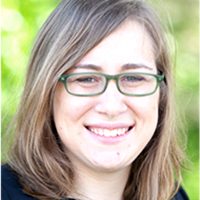 Natalie Bau: She is an international economist currently at the University of Toronto and will be joining Public Policy. Bau’s work examines several different aspects of the economics of education and educational policies and their downstream implications, including the effects on marriage patterns, teacher pay, student achievement and motivation, and others. She has projects in the works including “The Misallocation of Pay and Productivity in the Public Sector: Evidence from the Labor Market for Teachers” as well as “Labour Coercion and Economic Growth: Evidence from the Harrying of the North.”
Natalie Bau: She is an international economist currently at the University of Toronto and will be joining Public Policy. Bau’s work examines several different aspects of the economics of education and educational policies and their downstream implications, including the effects on marriage patterns, teacher pay, student achievement and motivation, and others. She has projects in the works including “The Misallocation of Pay and Productivity in the Public Sector: Evidence from the Labor Market for Teachers” as well as “Labour Coercion and Economic Growth: Evidence from the Harrying of the North.”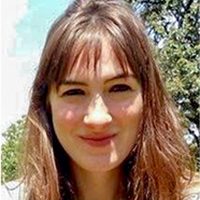
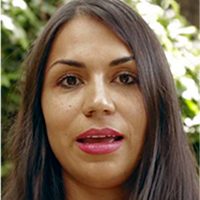 Amy Ritterbusch: She will be joining Social Welfare. Ritterbusch is a human and urban geographer and currently an associate professor of government at the Universidad de los Andes in Bogotá, Colombia. Her work is focused on urban social justice movements, marginalized youth, substance abuse, prostitution and other downstream effects of child poverty. She also brings extensive expertise in field work, ethnographic methods and Latin American populations across the hemisphere. She has written several journal articles, which have been featured in Child, Abuse & Neglect, Global Public Health, Annals of the American Association of Geographers and other peer-reviewed journals.
Amy Ritterbusch: She will be joining Social Welfare. Ritterbusch is a human and urban geographer and currently an associate professor of government at the Universidad de los Andes in Bogotá, Colombia. Her work is focused on urban social justice movements, marginalized youth, substance abuse, prostitution and other downstream effects of child poverty. She also brings extensive expertise in field work, ethnographic methods and Latin American populations across the hemisphere. She has written several journal articles, which have been featured in Child, Abuse & Neglect, Global Public Health, Annals of the American Association of Geographers and other peer-reviewed journals.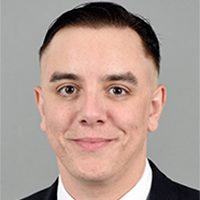 Carlos Santos: Currently an assistant professor in counseling psychology at ASU, Santos is coming to UCLA Luskin Social Welfare. His work is principally on gender and ethnic identities, stereotypes, and their impacts on social adjustment, educational performance and outcomes among adolescents in communities of color. He received his PhD from NYU and his work has been funded by NSF and NIH. In addition to his monograph “Studying Ethnic Identity” for the American Psychological Association, his work has been published in many outlets, including the Journal of Youth and Adolescence and the Journal of Counseling Psychology.
Carlos Santos: Currently an assistant professor in counseling psychology at ASU, Santos is coming to UCLA Luskin Social Welfare. His work is principally on gender and ethnic identities, stereotypes, and their impacts on social adjustment, educational performance and outcomes among adolescents in communities of color. He received his PhD from NYU and his work has been funded by NSF and NIH. In addition to his monograph “Studying Ethnic Identity” for the American Psychological Association, his work has been published in many outlets, including the Journal of Youth and Adolescence and the Journal of Counseling Psychology.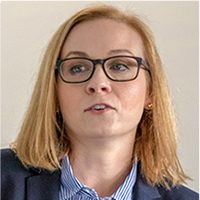 V. Kelly Turner: Turner is currently an assistant professor of geography at Kent State and her focus is human-environmental interaction and urban management. She will join Luskin Urban Planning in the fall. Her focus has been on how institutional arrangements and good metrics for resource consumption can help us build toward a more sustainable ecosystem, and she has applied this work to water resources, sustainable urbanism, and green infrastructure. She is the author of more than a dozen journal articles in publications such as Applied Geography, Ecology and Society, Urban Geography, and others.
V. Kelly Turner: Turner is currently an assistant professor of geography at Kent State and her focus is human-environmental interaction and urban management. She will join Luskin Urban Planning in the fall. Her focus has been on how institutional arrangements and good metrics for resource consumption can help us build toward a more sustainable ecosystem, and she has applied this work to water resources, sustainable urbanism, and green infrastructure. She is the author of more than a dozen journal articles in publications such as Applied Geography, Ecology and Society, Urban Geography, and others.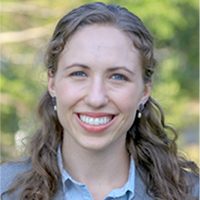 Emily Weisburst: She is finishing a PhD in economics at UT-Austin and will be joining Public Policy. Her work focuses on bias in policing, officer discretion in arrest behavior, police reform, and the effects of police presence in public schools. Weisburst previously served as a staff economist at the Council of Economic Advisors in the Executive Office of the President, and has done collaborative research for RAND and the State of Texas. Her work has been published in the Journal of Higher Education and Educational Evaluation and Policy Analysis.
Emily Weisburst: She is finishing a PhD in economics at UT-Austin and will be joining Public Policy. Her work focuses on bias in policing, officer discretion in arrest behavior, police reform, and the effects of police presence in public schools. Weisburst previously served as a staff economist at the Council of Economic Advisors in the Executive Office of the President, and has done collaborative research for RAND and the State of Texas. Her work has been published in the Journal of Higher Education and Educational Evaluation and Policy Analysis.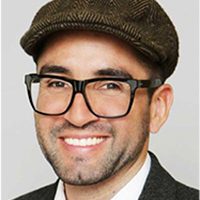 Chris Zepeda-Millan: He joins Luskin Public Policy. Zepeda-Millan is a political scientist and current professor of ethnic studies at UC Berkeley. His research focuses on social movements, immigration and communities of color, and has been published in American Journal of Political Science, Political Research Quarterly, Social Science Quarterly, and Politics, Groups and Identities. His book, “Latino Mass Mobilization: Immigration, Racialization and Activism,” was recently published by Cambridge University Press. Zepeda-Millan will be jointly appointed in the Department of Chicana/o Studies and will be working with the Latino Policy and Politics Initiative.
Chris Zepeda-Millan: He joins Luskin Public Policy. Zepeda-Millan is a political scientist and current professor of ethnic studies at UC Berkeley. His research focuses on social movements, immigration and communities of color, and has been published in American Journal of Political Science, Political Research Quarterly, Social Science Quarterly, and Politics, Groups and Identities. His book, “Latino Mass Mobilization: Immigration, Racialization and Activism,” was recently published by Cambridge University Press. Zepeda-Millan will be jointly appointed in the Department of Chicana/o Studies and will be working with the Latino Policy and Politics Initiative.